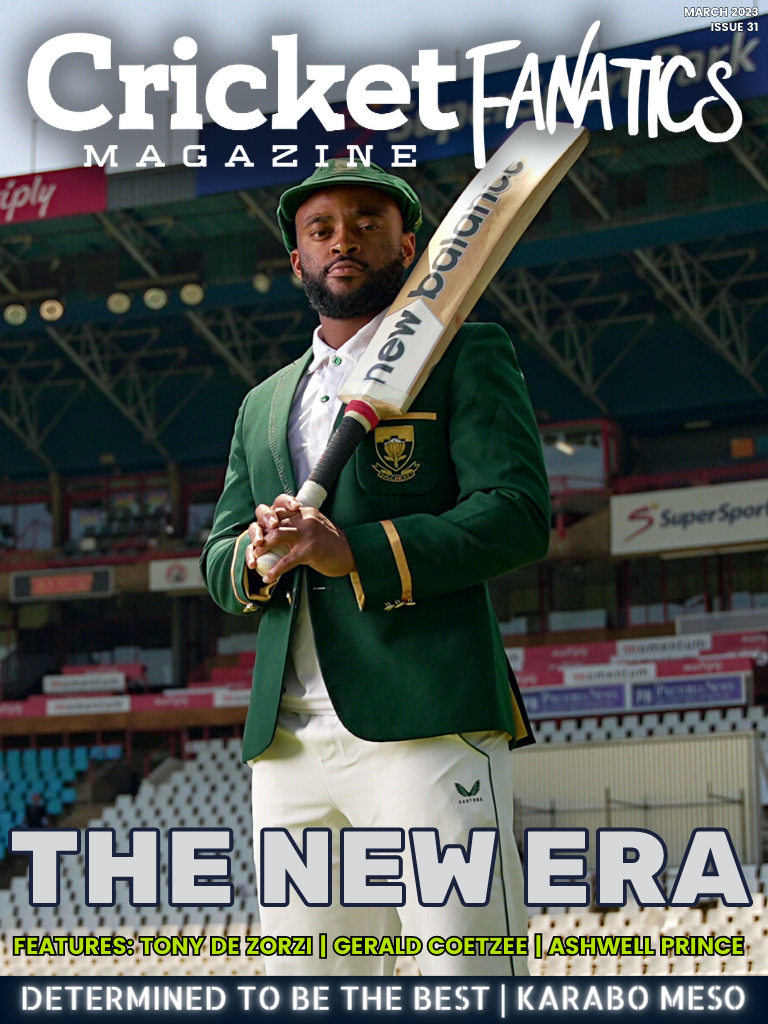
Table of Contents
EDITOR'S NOTE
A New Era
Khalid Mohidin
Founder and Editor - Cricket Fanatics Magazine
New coaches. New Players. New staff. New ideas. New philosophies. New hierarchy. New Policy. New hope. New era.
South African cricket pressed the reset button with the appointments of Shukri Conrad and Rob Walter.
Not only have we seen a difference in the approach and mentality of both coaches from interviews and press conferences, but in the last few months we have seen a clear change in the attitudes of players on the field.
It’s been a long time since I’ve believed that we are on the right path and that everyone tasked with the rebuild of South African cricket is on the same page. There seems to be a clear plan. Not only at the national level, but at all levels below too.
The facts are clear. Conrad’s experience, having coached at every level of the game, has given him the knowledge to understand what is needed for players to transition. He has also been successful in winning trophies, which is key to building a winning mentality within a team environment. Conrad also has a history of developing players, helping them move through the ranks and reaching their full potential. His relationship with the Director of Cricket, Enoch Nkwe, is also unique. Conrad coached the Nkwe in his playing days. Both individuals know and understand each other, which is key to building a cohesive unit.
Walter does not only have experience winning trophies in South Africa, but his time coaching overseas can give us a different edge and fill the gaps that have been vacant in our evolution. A bonus is his experience in strength and conditioning, which is key to the mental and physical fitness of our players. Conrad and Walter have been quoted mentioning their strong relationship and like-mindedness in certain important aspects of how South Africa want to play the game.
There is a sense of determination and belief that I now feel as a fan, and the aim of this magazine issue is to express those emotions with all fans. Perhaps, if you don't yet, you will feel a sense of hope towards the new regime and their mission.
We are stronger together.
In this issue, we will provide you with content that gives you a deeper understanding of the new era and the direction the Proteas are heading.
Am I right to feel hopeful towards the future?
I will leave that for you to decide.
So sit back, grab a beverage and a snack, and enjoy issue 31 of Cricket Fanatics Magazine.

How you can help US promote SA Cricket
By Khalid Mohidin
Hey, guys! Welcome to another issue of Cricket Fanatics Magazine, the first and only fan-driven Cricket publication in South Africa.
We started this venture on 1 July 2019 with a vision to get fans from all walks of life engaged with the game and give them access to the personalities in South African Cricket.
We want to tell the untold stories of South African cricket and we want fans to be heard.
Since we started, we covered the Mzansi Super League, Women’s Super League, Proteas Men and Women International Test, ODI and T20I series, as well as school and club cricket, with the aim of providing entertaining, engaging and educational content.
But haven't stopped there.
We started a Monthly Magazine where we provide multi-media content, including exclusive features, opinion pieces and analysis.
This works hand-in-hand with our YouTube channel where we produce unique cricket shows that allow fans to call in and have their say.
We have the Daily Show, which reveals all the major talking points in South African cricket, the Sunday Podcast Show where we sit back, relax and engage with the live chat, answering all the questions fans have about us and the game.
We have Off-Side Maidens, the first ever All-Women’s Cricket Show on YouTube, which helps empower women in cricket and gives them a place to share their own views on not only women’s cricket but all cricket.
We have a Legends show, where we interview all legends in cricket.
To produce all of this, we’ve invested a lot of money, time and effort to bring this to you for free.
But to keep this going we need your help.
So we have opened a Patreon account.
In the past, the super-rich supported the work of artists as patrons of the art.
Today, we are fortunate that technology has enabled anyone to become a patron of creative work, even if they are not billionaires.
We have therefore launched a campaign for you as a Cricket Fan to become a patron and support us as an independent, bootstrapped publisher.
As a Patron, you also get your voice heard as a Fan.
Plus: You have the opportunity to become more engaged with the content we produce.
Every month we produce at least:
- 60 Website Articles
- 20 Daily Video Shows
- 4 Weekly Podcasts
- Match Previews
- Match Reviews
- Video Interviews
- And more…
So please join our Patreon today initiative today. Even a tiny amount can make a big difference.
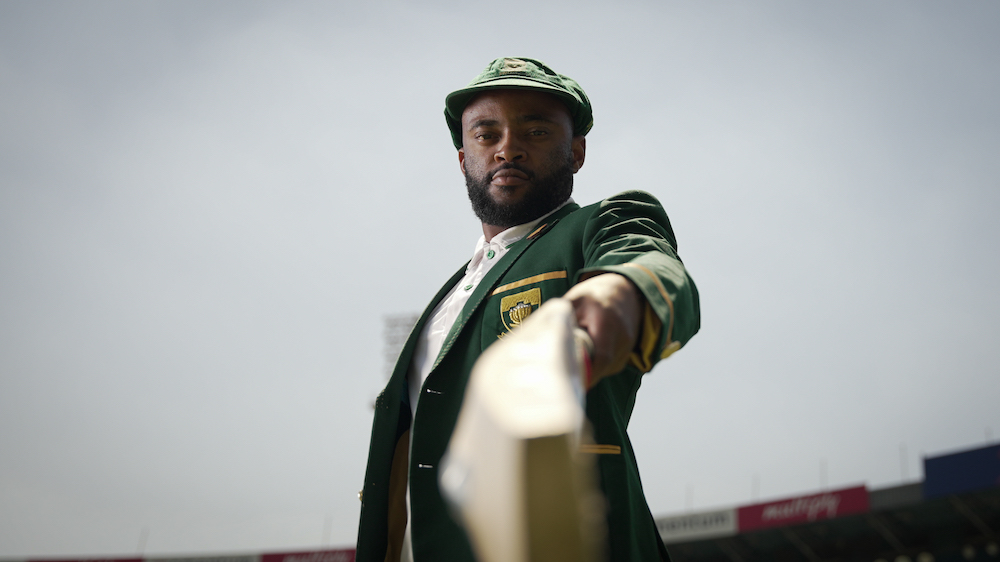
Standing Tall
By C. S Chiwanza
Wiaan Mulder leapt, punched the air and was halfway down the pitch as the ball reached the boundary. Mulder knew the moment Temba Bavuma's bat made contact with the ball that this was a good stroke. Bavuma held the pose as the ball raced to the boundary.
Evan Flint will probably argue that he knew that morning that it was going to be Bavuma's day. On the morning of day three, I had a chat with Flint discussing the Wanderers pitch. Flint is the Wanderers pitch curator. He felt Bavuma was due some runs. We laughed about the law of averages. Before we hung up, Flint repeated that Bavuma was due some runs, big runs.
After Bavuma reached the milestone, I resisted forwarding him a message I received from a colleague. Three words: He did it. Temba Bavuma didn't just do it. He did it in a big way.
There are hundreds, then Hundreds and finally big hundreds. Bavuma's maiden hundred was a hundred. It had significance in that he became the first black player to score a century for the Proteas. But, it did not help the Proteas to victory. The match was high-scoring and ended in a draw. Aiden Markram's century in the first Test against the West Indies was a Hundred. Capital letter H. It was a statement, a match-winning statement.
This is a big hundred, a daddy hundred. Daddy hundreds are gold. Second innings daddy hundreds are diamond. Temba Bavuma's 172 is the highest 2nd innings score for the Proteas since Hashim Amla's staggering 196 against Australia in Perth in 2012. It is the sixth-highest score for the Proteas in their second innings by a captain.
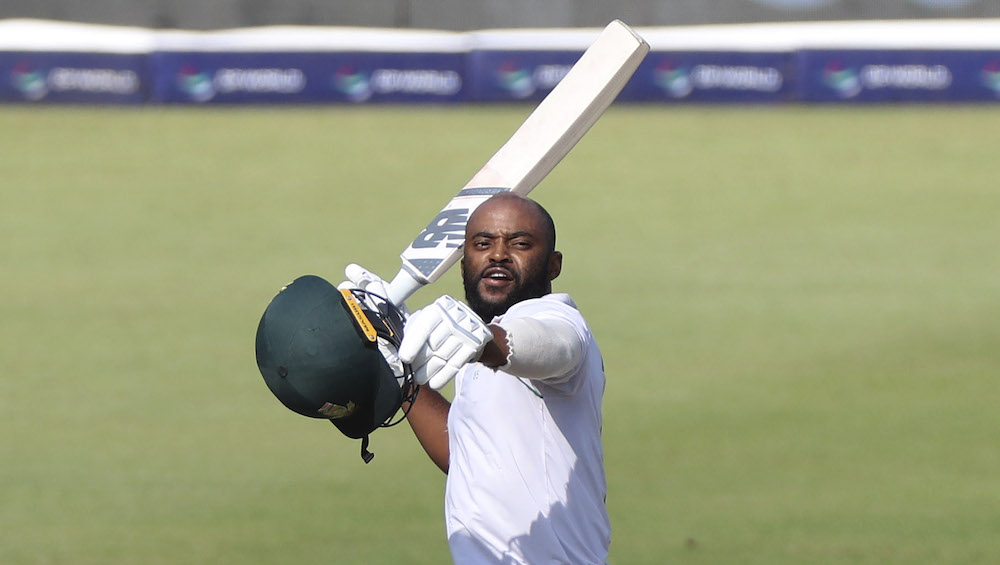
Temba Bavuma's career has never been just about cricket. There are always subplots. When he scored his maiden Test century, it wasn't just a century. Significance was attached to it, he was the first black player to score a century for the Proteas in Test cricket.
When he was appointed captain of the white ball teams, he was the first black player to lead South African white ball teams. Bavuma is proud to be the first black player to do these things but feels too much fuss is being made about it.
White ball captaincy turned out to be a millstone around his neck. He couldn't make cricketing decisions without non-cricket people telling him to go the other way.
At the 2022 T20 World Cup, Bavuma tried to stand down from captaincy because he felt a player in better T20 form should be playing ahead of him. He was advised against it. It would look bad, he was told.
His first act as Test captain was a pair of ducks. He faced three deliveries across two innings. It was an ignoble start to his tenure. His critics came out in full force. Bavuma has a lot of critics. Some of them are just haters who can't stand the sight of him playing international cricket. These blame him for everything.
This is despite Bavuma being the Proteas' best batter since the lockdown. Between then and January 2023, Bavuma averaged 45.33. No other Proteas batter averaged 35 or more in that period. Bavuma's shortcoming was not scoring a century - he scored seven fifties in 26 innings.
At 49 matches, he is third on the list of specialist batters with long spans between Test centuries. He is behind Adam Parore - 57 matches and Mark Boucher - 50 matches.
Since his maiden Test century, Bavuma made a Test career out of scoring gritty runs in high-leverage situations. But, gritty runs in high-leverage situations are not a measurable metric. You won't find that disclaimer on stat sheets or in record books.
Coming to the crease at eight for two is as high-leverage as it gets. The match looked nicely set up for another vintage Temba Bavuma fighting 60.
When he got into the 70s, the sparse crowd at the Wanderers began to applaud each run he made. It was one run less towards the elusive second ton. When Bavuma got to the upper 80s, my Twitter feed went quiet on Bavuma. No one wanted to be the one to jinx him.
I don't believe a spectator or a commentator can jinx a player, but listening to Ian Bishop speak of how much he wanted Bavuma to reach the milestone even though it was against his team made me nervous.
Cricket is a sport riddled with superstition and it's just difficult to remain 100% immune 100% of the time. I am fairly certain that as Temba Bavuma passed the mid-70s, none of his teammates dared to move from their seats.
As Bavuma inched forward to his ton, you could cut the atmosphere in the Proteas' dressing room with a knife. When Bavuma was on 98, they almost leapt up to celebrate, but the shot only got him a single.
When he was on 99, they collectively held their breath. They rose in unison as if they had choreographed this move for hours on end when Bavuma finally got his 100.
That spine-chilling moments… Well Done @TembaBavuma on a marvelous century! #SAvWI pic.twitter.com/fuKC1N9rLA
— Cricket Fanatics Magazine (@cricfanaticsmag) March 10, 2023
I breathed a sigh of relief as the ball sailed over cover on its way to the boundary.
In Cape Town, Carl Lewis had asked his wife and daughter to sit with him when Bavuma was on 97. He knew this one was coming and he wanted to share the moment with his family. All three jumped in celebration as the ball raced to the fence.
In India, Abhishek Mukherjee, the head of content for Wisden India, sat back with a smile on his face. First, he was relieved. Then he was overcome by elation.
He understood some of the criticism that Bavuma copped for some of his T20 performances. What he didn't get was the criticism of Temba Bavuma's form in the longer formats. Mukherjee couldn't stop smiling. I can imagine a few more spaces where people reacted like that to Bavuma's ton.
My Twitter feed came alive once more. SuperSport's IsiXhosa commentary team went wild. They were clapping, shouting and whistling. I could imagine a few more spaces where people had the same reaction. Like Temba Bavuma's father, a few people got emotional.
In his excitement for Bavuma, Wiaan Mulder screamed with joy as he ran over to embrace his captain. Then he checked himself.
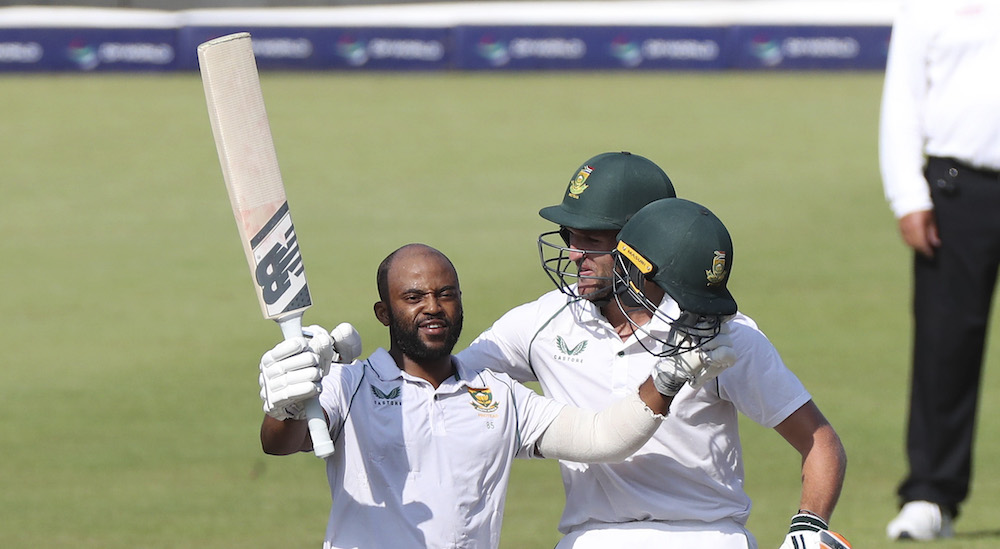
He slapped Bavuma on the back and took a step back to allow Bavuma a moment to let the moment sink in and perform the ritual of saluting the people rooting for him.
Bavuma removed his helmet and raised his bat to the changeroom, to his father in the Long Room and his mother in the stands and then to every part of the ground.
All the while, Mulder was wearing a broad smile, pumping his fist in the air. He knew what the century meant for Bavuma, and he was the happiest person in the world for a split second.
Temba Bavuma's century meant different things to a lot of people: vindication, Protea Fire, leadership, a moment of pride, hope - as he is named - and many other things.
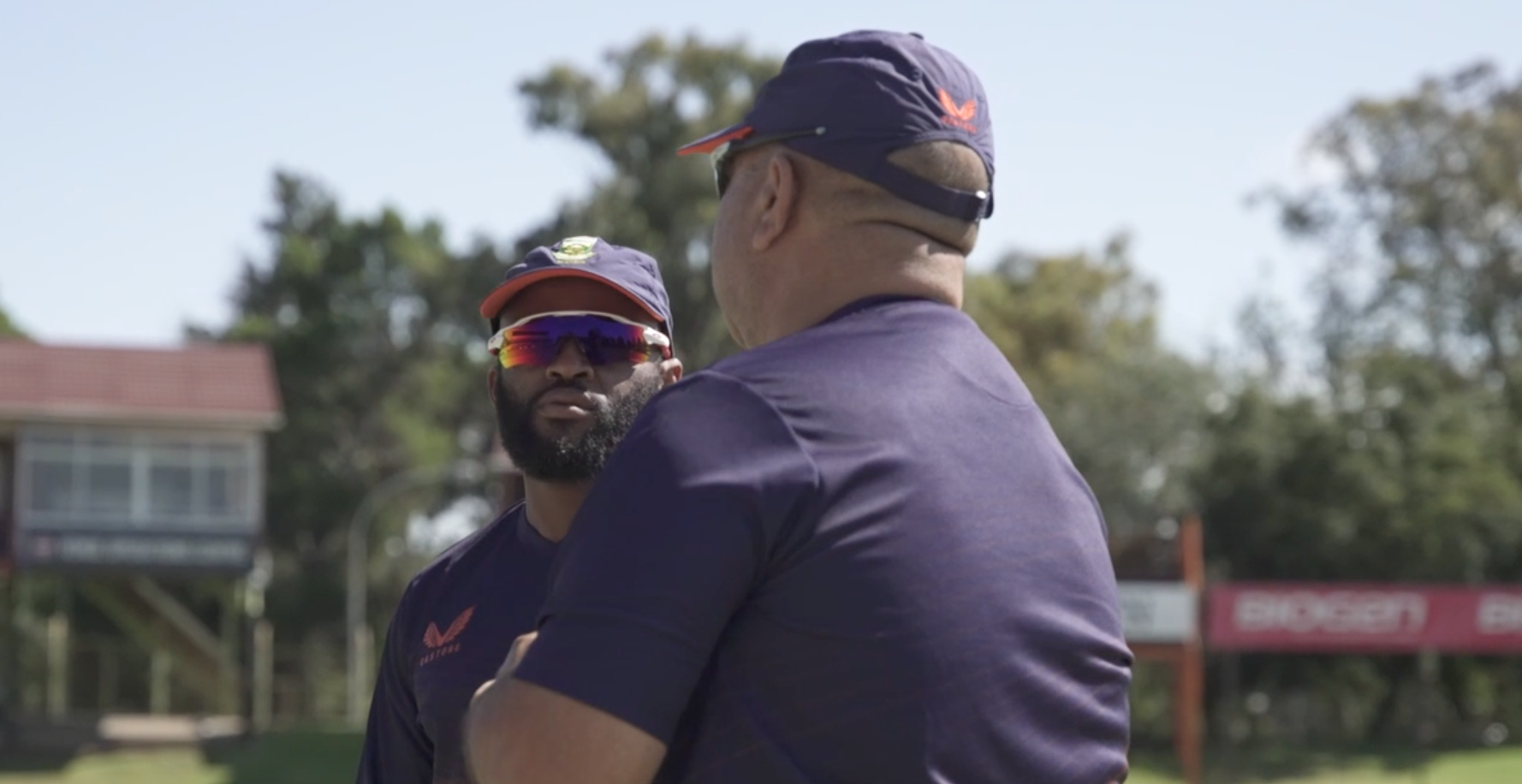
Temba ”The Right Fit” for Test Captaincy – Shukri Conrad
By Avuyile Sawula
Proteas Test coach Shukri Conrad said Temba Bavuma's promotion to the captaincy role for the red-ball side was the "right fit" for him.
Bavuma was revealed as Test skipper ahead of the recently concluded Test series against the West Indies, succeeding Dean Elgar after a near-two-year reign.
"This was pretty much my decision; I felt that Temba and I had a really good fit," said Conrad.
"We've come a long way, and he knows how I want to do things." Dean (Elgar) will still play a huge part in our leadership group, and this doesn't make Dean a poor captain and Temba a good one.
"I just felt it was the right fit for me going forward," he added.
The fairly revamped 15-man squad saw the omission of several regular squad players. Notable names include Lungi Ngidi, Kyle Verreynne, and Rassie van der Dussen, who missed out on the Test series against the Windies.
However, Conrad also revealed that all the players left out were not injured but just didn't make the "cut."
"Nobody is injured; we had a full complement to select from; everybody is fit and ready to go, and this is what we've come up with."
He further added his reasons for leaving out Ngidi:
"It's quite simple for me; I think Gerald Coetzee needs a good run. We all know the promise he holds, and now it's time to unleash him. It's purely Gerald ahead of Lungi for me right now."
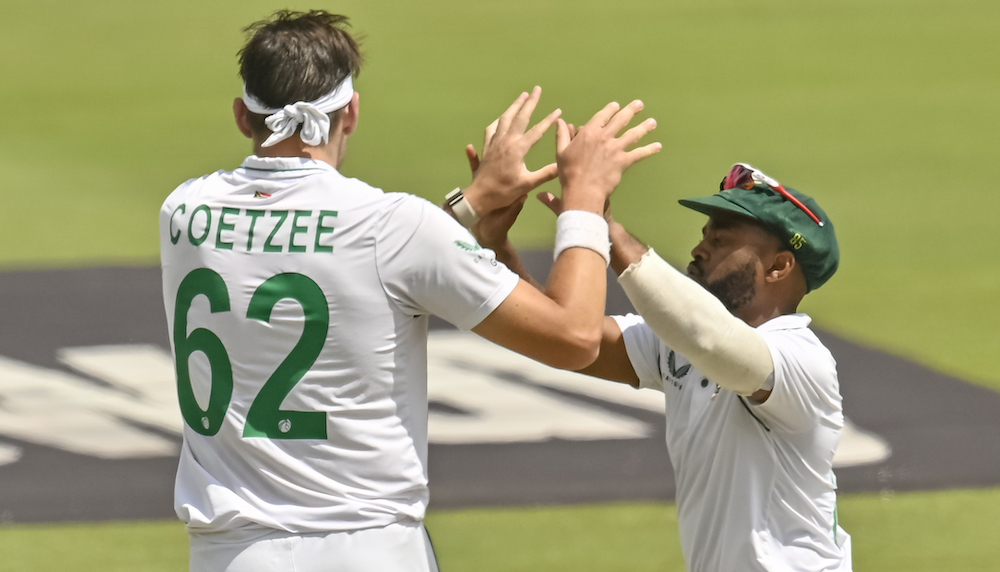
CSA also announced that they were reviewing the National Selection Committee and had released Victor Mpitsang from his role as National Convenor of Selectors.
Nkwe added that the two coaches would assume the responsibility of selecting players.
"I've always believed that the coach has more of a say when it comes to selection," said Nkwe.
"It is going to be for an interim phase, something that we want to trail, but I purely believe the two coaches are best positioned to talk about selections."
"I think it makes a lot of sense for them (the coaches) to take that accountability because they understand the playing philosophy and the bigger picture with South African cricket," he concluded.
Business Corner
Cricket Fanatics Magazine has the visibility, infrastructure, expertise and toolset to promote your brand, business, product or service.
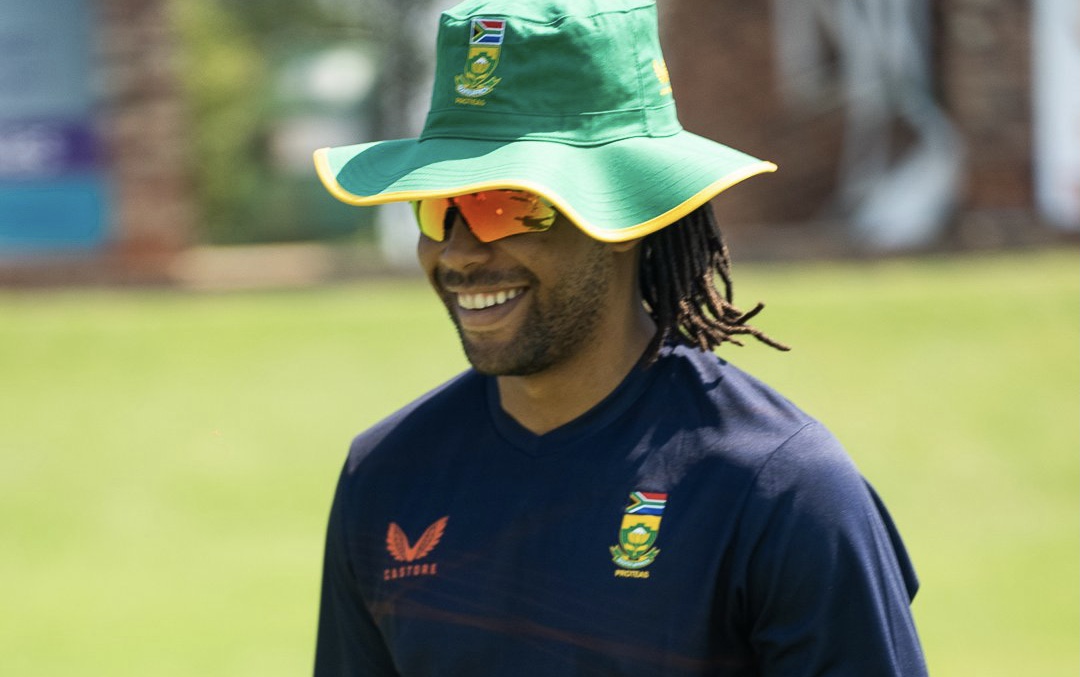
"You don't need to change who you are to succeed" – Tony De Zorzi
By Naeemah Benjamin
"I think if I had to tell myself something at the beginning of the season," said Tony de Zorzi. "To that version of myself, I would just say keep working hard, don't change who you are. You don't need to change who you are to succeed. Just keep believing in yourself and eventually you'll get the rewards."
The 25-year-old made the move from Titans to Western Province in 2020 where Ashwell Prince was at the helm.
He wasn't just knocking on the door, he was banging on it. He averaged near 50 for the past 3-4 seasons and averaged 101 in the 2022/23 season alone, largely because of his unbeaten triple hundred against the Itec Knights.
He ended the season with over 800 runs in the first-class and one-day circuits combined. The dream for every cricketer is glaringly obvious – representing your country.
A calm-headed De Zorzi silently went about his work and put in the hard yards. Finally, that chance came when Shukri Conrad, whom he's worked with before at the national academy, became the Proteas red-ball coach.
But what does De Zorzi think earned him the call-up?
"I wouldn't be able to pinpoint one specific thing. I think there's been a lot of things that have come out in a couple of seasons being at Province.
'I enjoyed my time working with Ash [Prince], it's a nice group of players [at WP] so we're playing good cricket and it always helps you to perform better if you're in a good team.
"Working with Snakes [Nackerdien] has also been very fruitful. I've enjoyed my time with him as well. There's been a lot of things that have worked out.
"Moving to Cape Town, being in a good team, working with good coaches and living in a nice city makes it easier to transition."
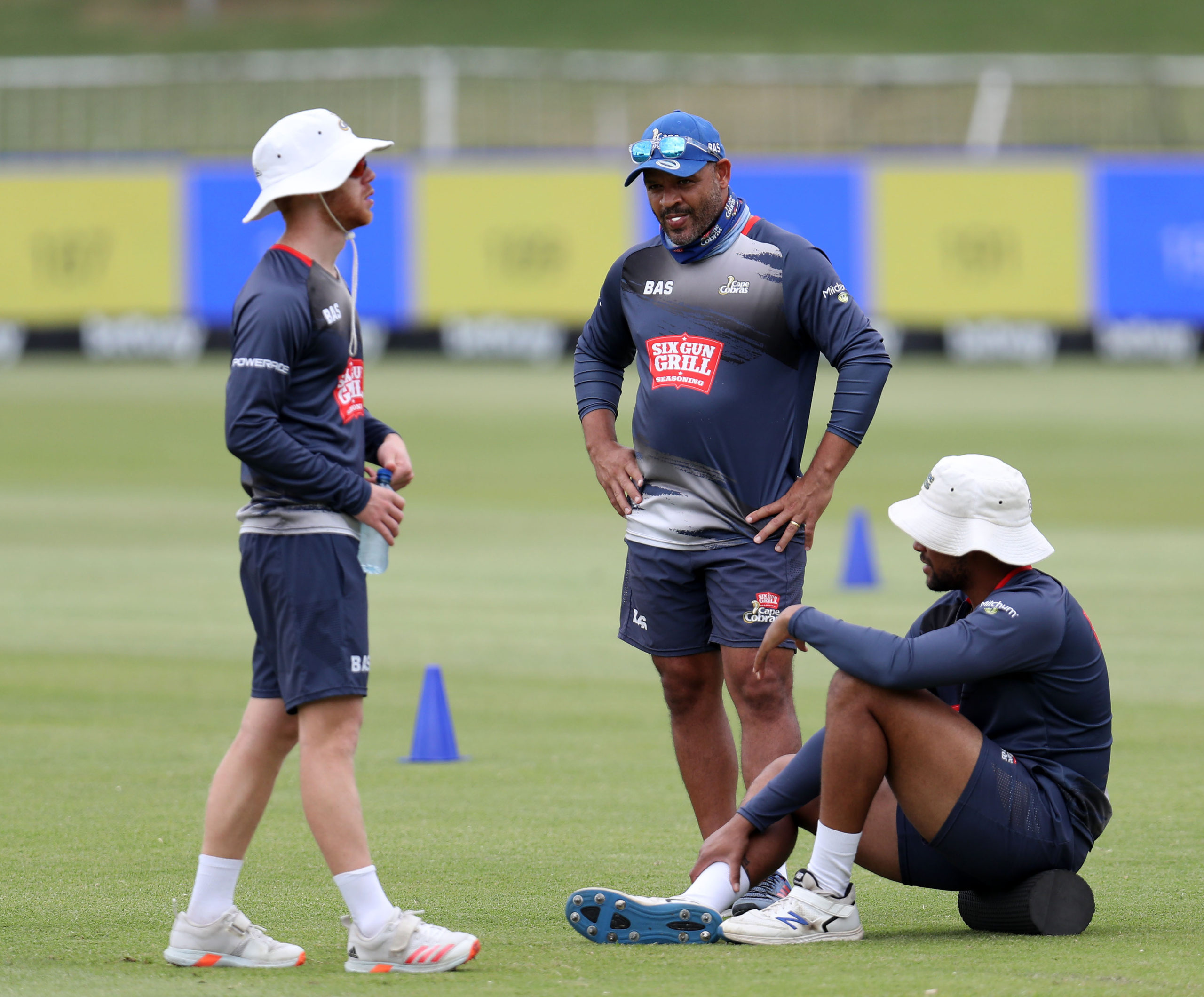
He came onto the local scene late in the 2016/17 season where he made his Sunfoil 3-Day Cup debut. He then went on to make his CSA Provincial One-Day cup challenge debut.
All of this came after being the Junior Proteas skipper at the 2016 U19 World Cup in Bangladesh.
De Zorzi has also captained Cricket South Africa's Emerging side, the SA Invitational XI vs the Netherlands, and the WP Blitz, so he's no stranger to leadership roles.
De Zorzi made his international debut after his call-up to the squad against the West Indies.
Despite a short stay in the first innings where he was bizarrely run out trying to sneak a risky third run, his stay at the crease seemed controlled and composed.
He showed glimpses of what he's capable of and improved as the series continued to score his maiden Test half-century in only his second match.
With a longer stay at the crease and yet again an innings of utter control and authority, he looked assertive and played sensibly.
"Playing for South Africa or reaching that goal was amazing. Sharing a change room with guys you look up to is also obviously exciting, he" said about his debut.
"On the day I was playing, I felt nervous but excited. Would've liked to capitalise on the first innings, to get run out was very annoying but I still felt like there are things I could take away from that."
He embodied exactly what it means to represent your country when he received his maiden cap. The emotions were raw and real but also a clear representation of what it truly means. All the sacrifices behind closed doors.
He explained his emotions, and his routines ahead of his debut, which also saw his mother, Natasha, watching on in the stands.
"Every player sets goals but there are things out of your control and that's in terms of coaches, selectors, you know a couple of bad decisions as a batter, so all you can do is set a goal of trying to be consistent on and off the field, have fun and hope you get rewarded.
"In my video there I was crying when I got my cap because obviously of all the sacrifices that you go through and the ups and downs of being a cricketer. The abuse you face on and off the field, all those kinds of things and the emotions - they come to you eventually so it just came all at once.
.@Tonydezorzi33 receiving his maiden Test cap gives us all the feels
— Proteas Men (@ProteasMenCSA) February 28, 2023#SAvWI #BePartOfIt pic.twitter.com/JYqLABA0nF
"I know everyone's different. The emotions you feel like it's a culmination of all the things you went through in your career so to make a Test debut is, of all the formats, really special. But I don't think any of them are lesser.
"I felt everything come to the forefront. Ultimately you want to do well once you get to that level and just stay true to who you are on and off the field. Try your best to repeat them and give yourself the best chance of succeeding."
"Generally, in terms of mental routines and stuff, I like to pray a lot, I like to meditate in the mornings, have a coffee and go through my journal, where I write about things I did well and things I didn't do so well just to make sure I process things. It gives you a chance to pick up on things you did/didn't do well."
De Zorzi is part an important part of Conrad's plans for the future and a key part of the new era. Given their past, it was logical to ask him about the coach and his mentality.
"I've worked with Shuks at the national academy so I know he's an honest guy. You always kind of know where you stand with him and I think he's very respectful.
"I think he encourages everyone to be themselves which is something I respect and appreciate and I think a lot of the guys do too.
"Ultimately I think he always shows players respect and backing. I've experienced that before and we are experiencing it now in the national team."

Getting to know Runeshan Moodley
By Lubabalo Skhosana
The appointment of a new coach often comes with a few other appointments to complete the coaching staff. Even with the Proteas’ appointments being 2 coaches as opposed to 1, things have not been any different.
Former SA U/19 coach, Shukri Conrad, after being appointed as
the Proteas Test coach, has assembled his support staff which involves someone he would have worked with when he was U19 coach, Runeshan Moodley.
Moodles, as known to many, is not someone many avid cricket fans would know. Not many people take note of who the Strength and Conditioning coach of a team is.
We thought we'd take the time to have a look at who the new S&C is, where comes from and a few other interesting facts about him.
Born in East London in 1984, Runeshan Moodley relocated to Gqeberha, then Port Elizabeth in 1995 where he attended Muir College Boys High School. A prestigious boy’s college in Uitenhage.
He then matriculated in 2002 and enrolled in BHMS (Bachelor of Human Movement Science) in 2003 at Nelson Mandela University.
Moodles’ involvement in cricket is not something he picked up along the way but something that has always been part of his life.
“Cricket has always been part of our family growing up and I played throughout school representing the 1st XI at Muir between 1999-2002.”
Having represented EP U17, UP U18B, UPE and NMMU premier leagues as well as attending one USSA week, Moodles has definitely had his fair share as a player.
Moodles says cricket has always been a big part of his family and this is where his passion for the game started.
Even though his goal was always to go the Biokineticist/S&C route, Moodles' knowledge of cricket that he gained through his involvement as a player and coach was always going to pave the way for him.
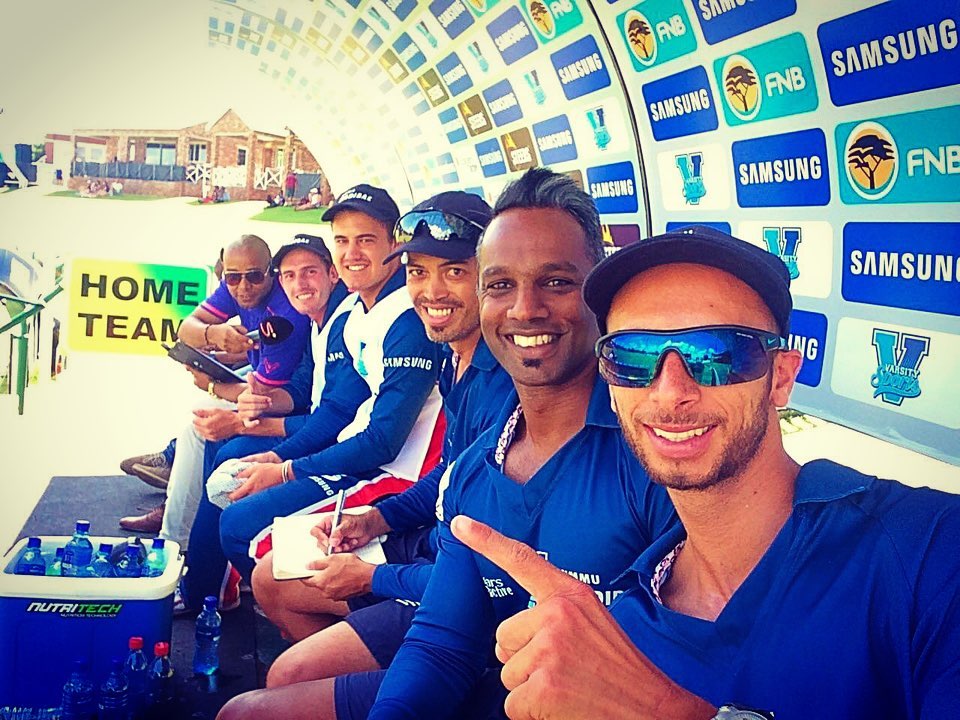
“When I started studying, it was always my goal to be involved in some sort of sport as a Biokineticist/S&C. I was initially focussing on rugby but had more knowledge of the game of cricket and focussed on that.”
Having coached Muir College’s 1st XI between 2009 and 2013 where he was also head of sport, his passion for the game of cricket continued to grow along with his experience.
Mr Moodley credits part of his growth to former Madibaz Cricket manager, Mr R Osman. “Cricket provided me with a clear path for growth and working under Riaan Osman at NMMU was integral to my career going forward.”
Mr Osman approached him and asked him to head up the conditioning for Madibaz cricket and hockey, this is where Moodles began to zone in on cricket.
“This is where I started focussing on one sport and delving deeper into the demands of the game and what is required at the highest level.”
If there is one thing to learn from Moodles is his ability to seize the moment.
Having always wanted a cricket career, even if it was not as a player, Moodles saw an opportunity within the game and made sure that he grabbed the opportunity with both hands and never looked back.
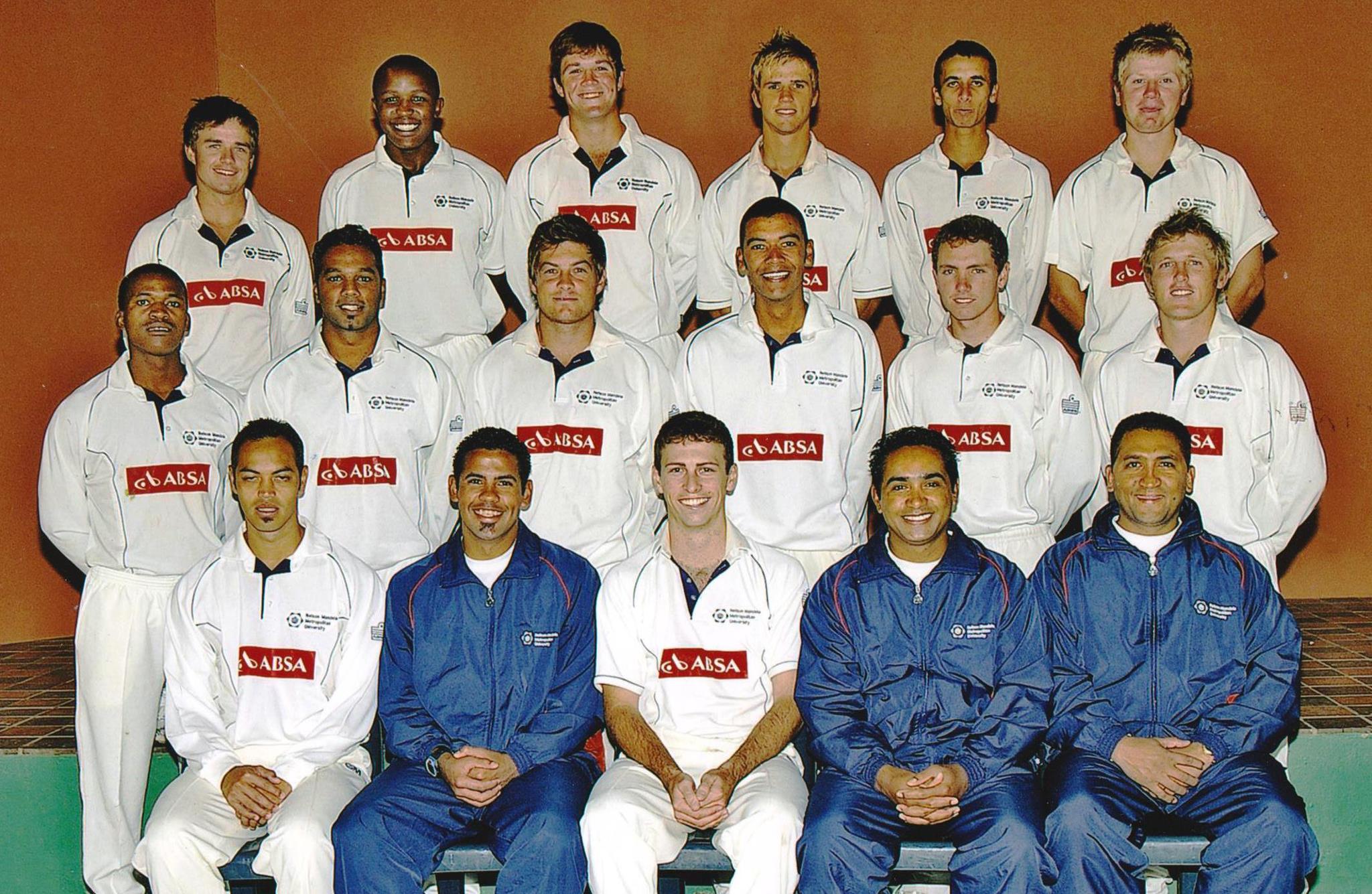
He may not have had the opportunity to make it as a player in cricket but he knew he had the opportunity to make it as an S&C and hence we are here today.
The level of knowledge and understanding of cricket that he has, together with his coaching knowledge, makes him easy to want
by your side as a coach.
“The game continues to evolve and S&C coaches have become an integral part of any high-performance setup. This allowed me to get more involved in S&C work to make a career out of it.
"Biokinetics is seen as a luxury to the average person and can be a costly exercise when doing rehab. Working as a S&C allowed me to practice my Bio principles and enhance players' abilities through conditioning. I saw this gap in the field and put all my eggs in one basket to give it a full crack.”

Moodles’ journey to Proteas support staff:
2015-2017 – NMU Madibaz Cricket team and attended various Varsity Cups and USSA weeks
2016 – Started assisting the EP Senior Provincial team for their home games under Piet Botha who has also played a vital role in my development as an S&C.
2017 – 1st SA U19 appointment for the incoming series against England
2018 – U19 World Cup in New Zealand and employed full-time as the S&C/Assistant coach for the EP Senior provincial team and toured England with SA U19
2018-2020 – – EP Senior Provincial team & SA U19 tours to India and inbound series against Pakistan
2021-2023 – EP Warriors S&C under coach Robin Peterson
2023 – Proteas Men S&C
Moodles has worked at the Varsity level with Madibaz Cricket and at a professional level with EP, Warriors and now the Proteas.
He explains the difference between working with university athletes and professional athletes.
“One of my philosophies revolves around the principles of S&C will always remain the same and how you approach and program it will differ between the levels of the sport.
"I was fortunate enough to be involved at every level of the sport and each level has taught me certain things that I still practice today.
"Working with varsity athletes was probably the most enjoyable part
while I was there. The group of cricketers we had under Mr Osman and head coach Baakier Abrahams, were open to learning and always had a high-performance feel about it. We strived to create a performance environment, and this stood me in good stead going forward.
"Students can be a challenge at times but my relationships with them allowed me to gain maximum buy-in from them which also allowed me to grow.
"There are not many changes in the professional setup. Mainly how you manage players is the most important change. Roles in the management team in a pro setup are more defined so the focus can be solely on your role.
"Conditioning becomes more of a focus at the pro level as the players are involved in various formats. Cricket will always be a skills game but it’s your conditioning that will determine how effectively you can perform your skill at the required intensity.
"The easiest part about the pro setup is that the players are available at all times and conditioning blocks are easier to administer.”
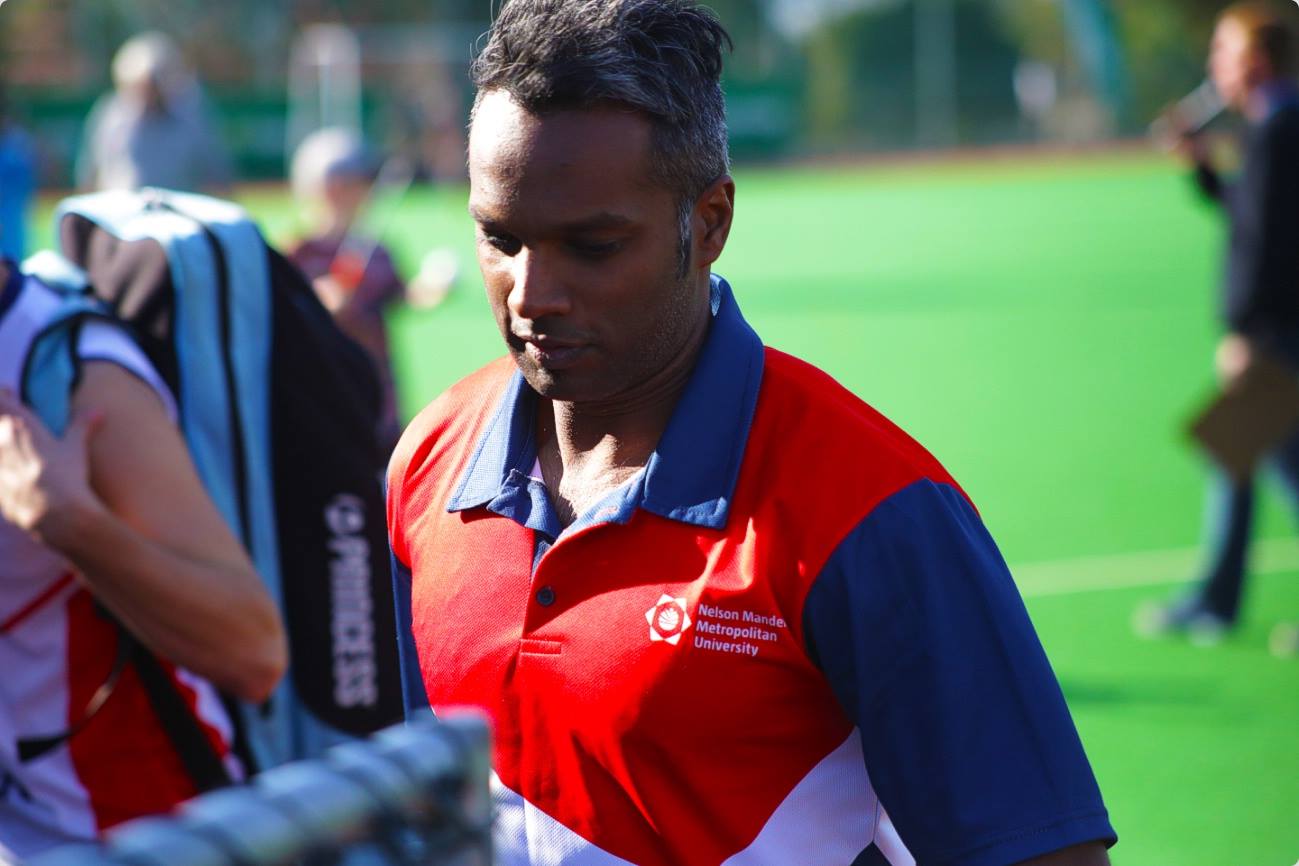
Being an S&C coach much like any other job is no child’s play and Moodles believes that being able to treat the person before the player is very important.
He believes that this is key in building relationships with players to understand how they operate and to know how to approach them.
Keeping up with the evolution of the game so that you are on track with what the game requires from an S&C.
Moodles added, “I am a level II coach (since 2010). This allowed me to
think like a coach and use my conditioning experience to get the best platform for players. I have always assisted with fielding sessions, throwing in nets etc.
"Being able to assist with these skills in the modern game is so important in a multi-disciplinary team, it sort of makes you more employable if I could explain it like that. It also provides the coaches with some confidence in that they can allow me to look after my own space.
"Being able to carry out these skills has almost become standard
practice with S&Cs around the world.”
For him, it was never just about being an S&C coach but about being an S&C that brings change and that has strong knowledge about the sport that they are involved in.
We often see coaches work their way up the coaching ladder, but Mr Moodley’s story is testimony that S&Cs also work their way up. His story is a testimony of hard work, dedication, passion and patience.
A word from Runeshan Moodley to aspiring S&Cs:
“Get to know the game – be passionate. Get the necessary qualifications, put your head down and work – sometimes it might have to be unpaid but there is never a cost to gaining experience. Try not to skip levels as the lessons and traits you learn at each level will assist you when you get to the top. Always keep learning.”
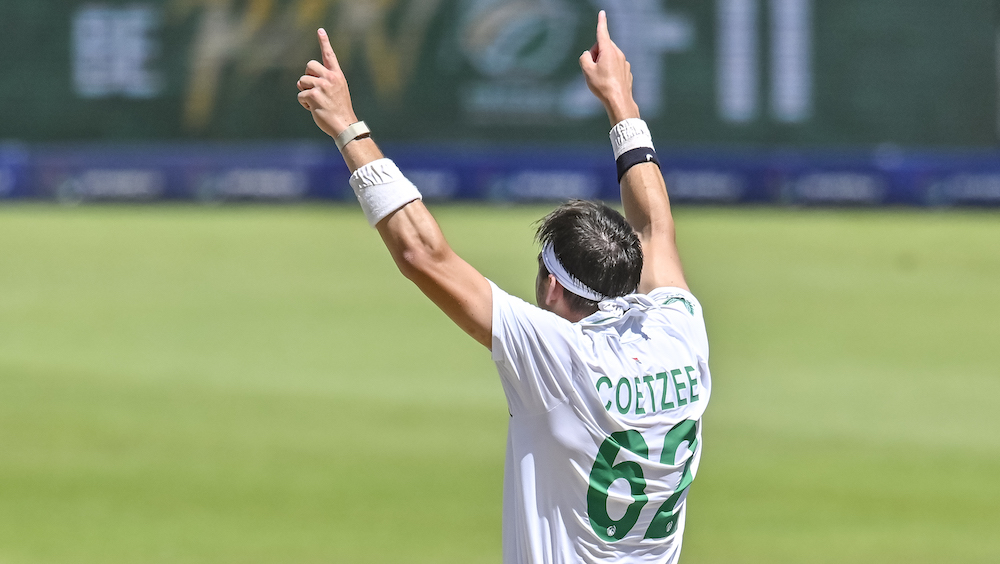
Gerald Coetzee’s international journey begins under new management
By Werner Erasmus
It hasn’t always been smooth sailing in the career of the man known as the “Karate Kid” amongst some cricket lovers, owing to his bandanna-wrapped forehead as he enters the playing arena.
While he burst onto the scene for the SA Under-19 side as a 16-year-old and then again in the 2018 Under-19 Cricket World Cup at the age of 17 where he took eight wickets in four matches, regular injuries in the early part of his career at the Knights meant that Gerald Coetzee spent more time off the field than on it.
“All the early career injuries were very tough for me. It was almost a year and a half, two years without cricket. But in a sense, it helped me.
"It made me realise I am not Gerald the cricketer, I am a person who enjoys cricket. My identity doesn’t fall on cricket, it falls on who I am as person and my relationship with God and my family”.
Gerald also realised that he had to work on strengthening his body to cope with the strenuous task of being a fast bowler.
“I found myself my own (fitness) trainer, Herman Liebenberg. We assessed where my weaknesses were and I took a couple of off-seasons to strengthen the parts of my body that needed strengthening. I trained specifically for what my body needed.”
Gerald has had the opportunity to work with many different coaches, mostly in Bloemfontein where he grew up and played all his cricket. He attended Grey Bloem Primary School and then St. Andrews High School.
His first two coaches were his dad and his brother. At St. Andrews he was coached by Gregg Hobson, someone he still works with today. Then came the opportunity to work with Allan Donald, something a lot of young players could only dream of.
Dillon du Preez who played for the Knights for many years and has worked with the Proteas Women as an assistant coach, gave up a lot of his time to help Gerald develop.
Most recently he had the opportunity to work with Charl Langeveldt at the Proteas and Eric Simons at the Joburg Super Kings in the SA20.
“I really enjoyed playing in the SA20 with big crowds and a high standard of cricket. I gained a lot of knowledge working with the likes of Stephen Fleming and Albie Morkel, who I grew up watching.
"I think the big crowds helped me going into the test format, just to ease the nerves a bit, but there is nothing quite like Test cricket. It is just something else.”
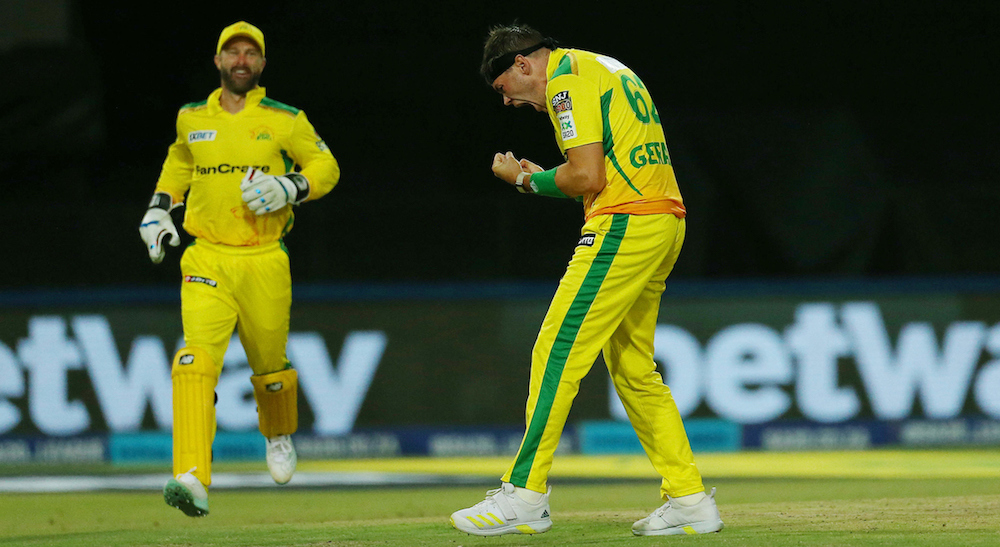
What likely helped Gerald more than the SA20 before his debut Test series against the West Indies, was going on tour as a part of the Test squad to Australia in December 2022.
“The tour was very good for my development. To have been there with our bowling attack that is one of the best in the world and just to see how they operate, to see the next level and the standard they maintain, was something I needed for my career. I saw how hard Test cricket is and how rewarding it is if you play well and do the right things.”
Gerald got a taste of what it was like, not only through spending time in the environment and bowling in the nets to the Proteas batters, but also playing in the warmup game where he ended up getting a hat-trick to wrap up the Cricket Australia XI after going for a few runs initially. It was just the taste of the international level that Gerald would have wanted.
Back home a lot of changes took place with Rob Walter taking over the reigns as coach of the limited overs formats while Shukri Conrad was announced as the new test coach.
Shukri immediately made his intentions clear with where he saw his team heading by announcing a whole host of changes from the squad that had travelled to Australia on that disappointing Test tour.
One of the big calls he made was leaving out Lungi Ngidi in favour of Gerald.
“It’s quite simple for me. I think Gerald needs a good run. We all know the promise that Gerald holds, and now’s as good a time as ever to unleash him", said Conrad.
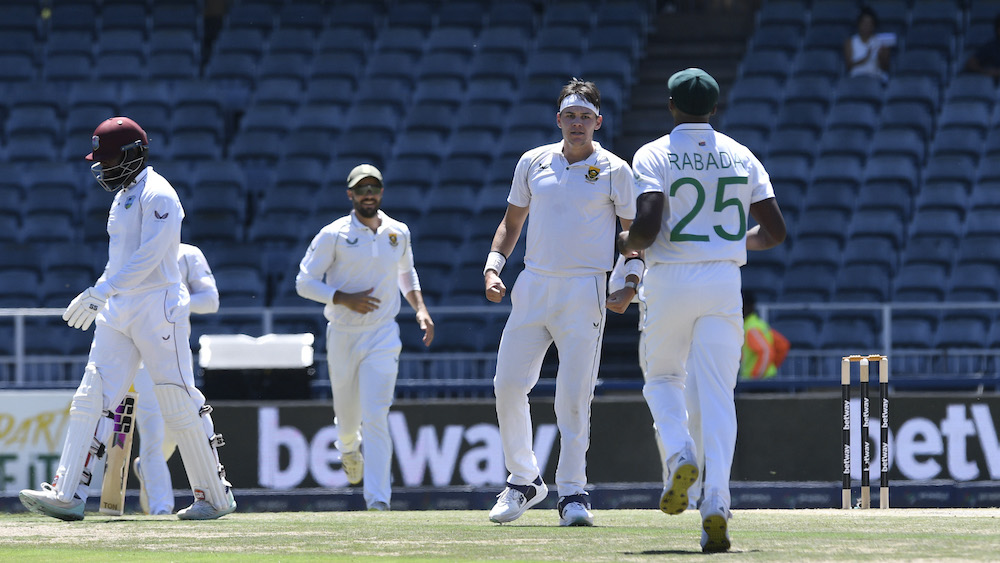
Gerald Coetzee certainly didn’t waste time in repaying the faith that Shukri Conrad showed in him.
In the two tests against the West Indies Gerald took nine wickets at an average of 15.88 and a strike rate of 26.6.
He celebrated each wicket with a roar and a double fist pump. He has that same crazy eyes Dale Steyn became known for and Shukri Conrad knew exactly what he was unleashing.
“Coach Shuks and I have a good relationship. He is very good coach and very specific and true to his own style, which I appreciate. He is likes to focus on you becoming the best cricket player you can be by being yourself and giving you the freedom to express that, which is what I believe most cricketers would like.”
Gerald expressed his desire to play for the Proteas across formats and to be a part of the first South African team to win a World Cup.
He also likes to focus on his batting, which he enjoys, even though he had more success at a younger age than recent times, where the levels became higher and more difficult to navigate with the bat.
“With my batting the idea is to just keep working on it. I would really like to be a bowling allrounder. I see myself there in the middle to lower order eventually, helping the team win by finishing off games.”
JP Duminy has joined Rob Walter with the limited overs squad as a batting coach and is someone Gerald feels he will be able to lean on.
“JP is very specific to his style, which I always appreciate. To be working with him and to learn is something I am very much looking forward. Just to be investing into my batting with someone like him, I definitely think it will grow.”
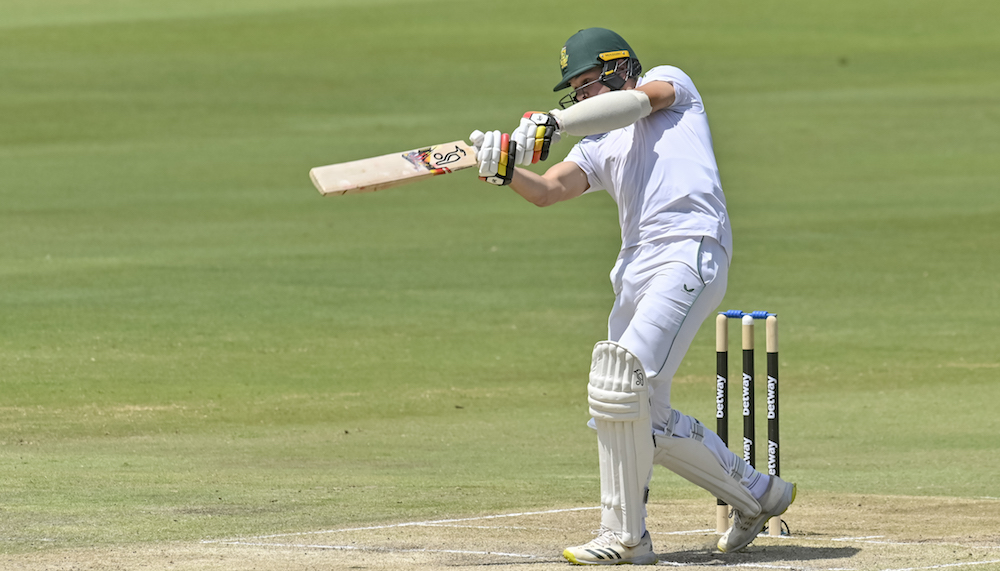
It is promising to hear a youngster focused on his all-round game, which is certainly something the Proteas need to help lengthen their batting line-up. And it is more than just promise when it comes to this 22-year-old who has just started his international career.
It is talent, raw pace, work ethic and pure passion all bundled up in an exciting package that will have aspiring young cricketers writing his name down on posters and calling out to him in the stands with beaming, tiny bandanna-wrapped faces for years to come.
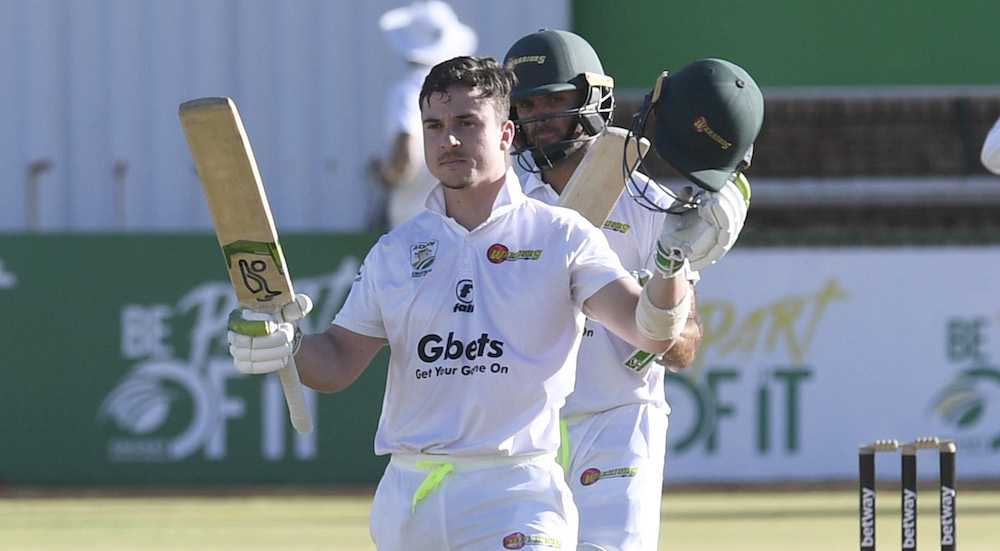
Future Proteas
By Abhai Sawkar
Now that the 2022-2023 domestic season is winding down, it’s the perfect time to reflect and look forward to some of the brightest talents that could potentially play across formats for the Proteas in the not-too-distant future.
From the 4-Day Series, to the One-Day Cup, to the razzle-dazzle of the SA20, we’ve been treated to an exhibition of close contests and bolting stars.
The Proteas now have a new coaching setup, and there’s clear emphasis on accommodating some of the relatively less experienced but more skillful young players to make the grade. And with that being said, let’s zero in on some of the big names in the making.
Jordan Hermann (all 3 formats)
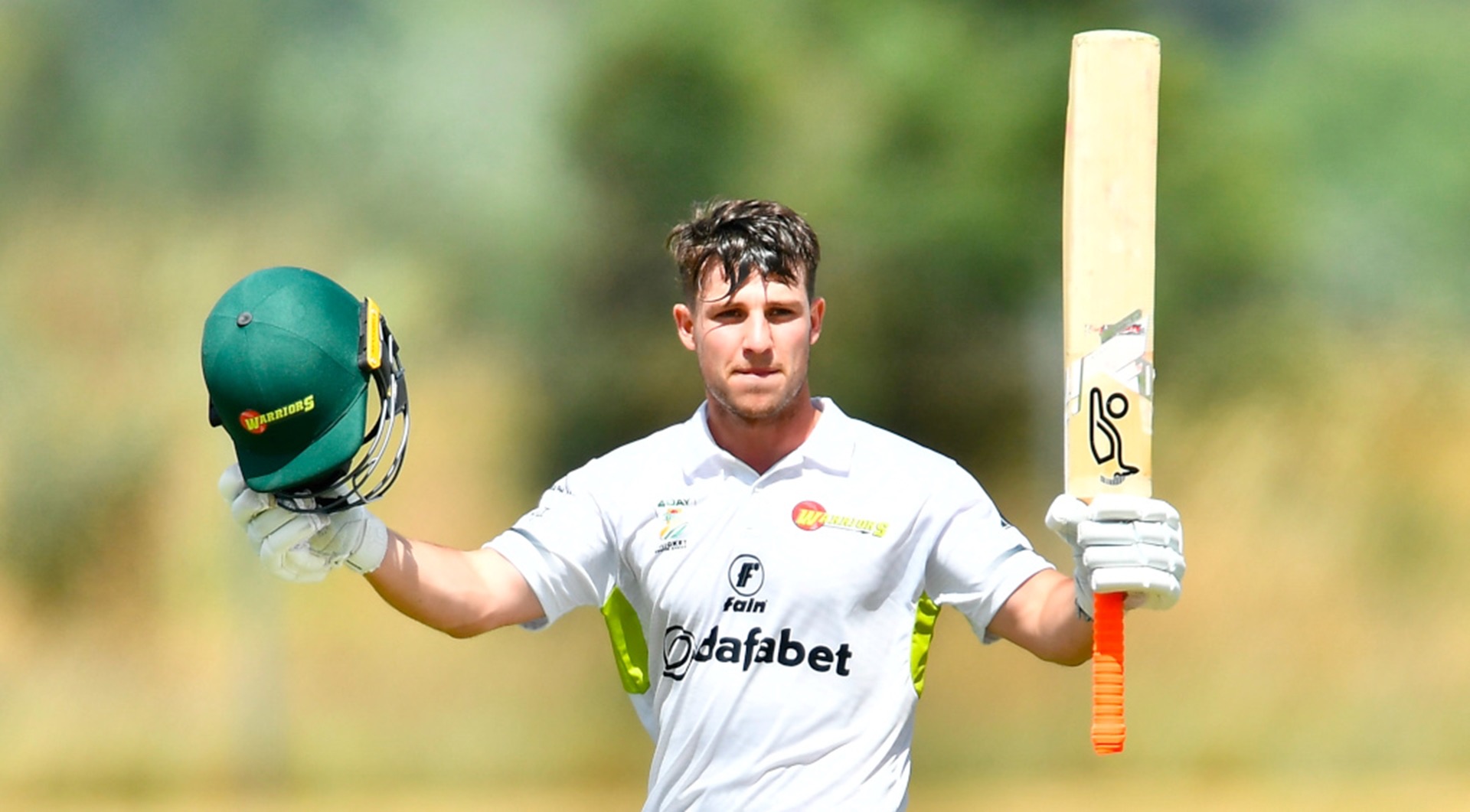
The hard-hitting left-handed opening batter started off at the Titans during the previous season.
However, the relative scarcity of game time at his home team forced him to relocate to the Warriors, and that was the catalyst for change.
Hermann made 611 runs with an average of nearly 68, but that wasn’t all. He would soon break into the 50-over side, and follow that up with a contract in the SA20 for the Sunrisers Eastern Cape.
Against Boland, he smashed a 160-ball 150, and even though the Warriors lost that game, he showed impressive levels of solidity and composure.
He may not have had the best initiation to T20 cricket, but he stands out as a prospective all-format hotshot for South Africa.
Matthew Breetzke (all 3 formats)
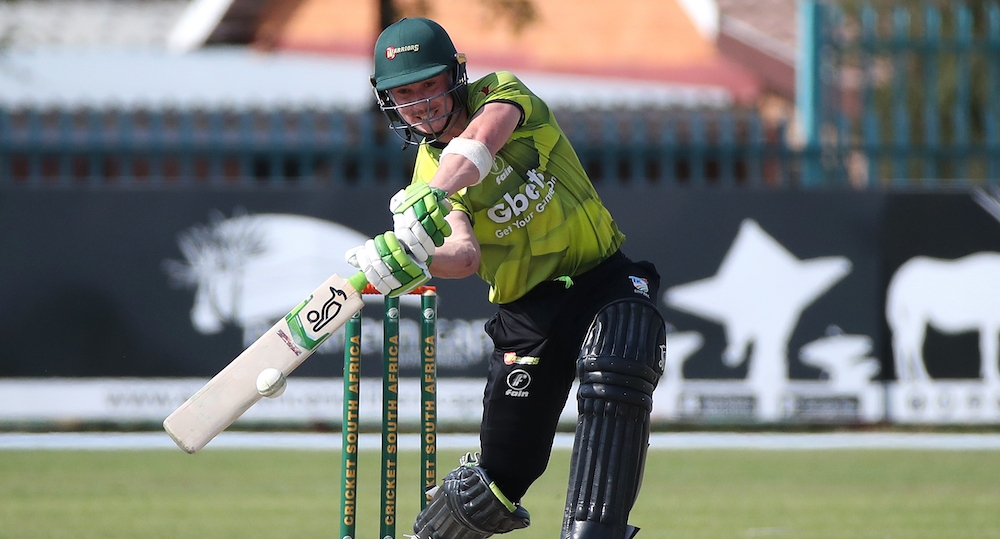
The Proteas Test top-4 will soon have plenty of competition. With Aiden Markram and Temba Bavuma notching up big scores as well as Dean Elgar approaching the twilight of his Test career, there will be a golden opportunity coming up.
Matthew Breetzke is the highest run-getter in Division 1 this season, and February has been a month to remember. Tons against the Lions and the Knights have built his confidence and exuberance.
Not only can he dig in, but he can play his shots at will. Breetzke has long been touted as a prospect for the national side, but how soon will that ambition come to fruition?
In addition, his T20 game is steadily improving, and he has put together a few sprightly knocks for Durban’s Super Giants, in spite of batting in a position that wasn’t preferred.
Dewald Brevis (ODI / T20I)
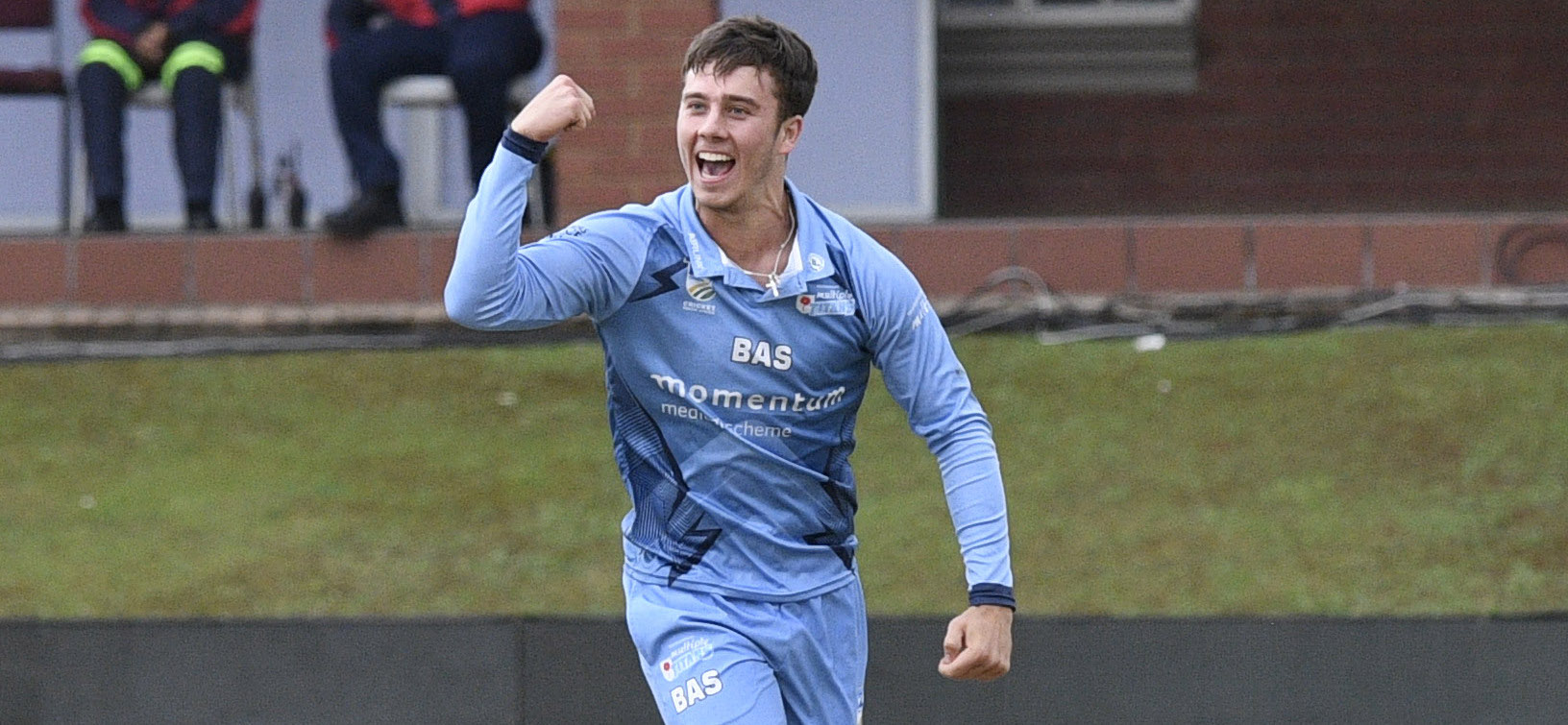
Ever since he lit up the Under-19 World Cup, all eyes have been on the clean-hitting right-hander. He went on to play in the IPL and CPL, and is on course to becoming a household name in the T20 franchise circuit.
But more importantly, he was introduced to the other two formats at the domestic scene, and he has insisted that Test cricket is one of his main goals.
Among his exploits this season was a barnstorming 162 in the T20 Challenge - the highest ever individual score in that tournament.
There have been numerous calls for his national selection, and it’s very likely that his Proteas initiation will start off in the short formats.
In addition to his powerful batting, he can chip in with his part-time leg spin.
Donovan Ferreira (T20I)
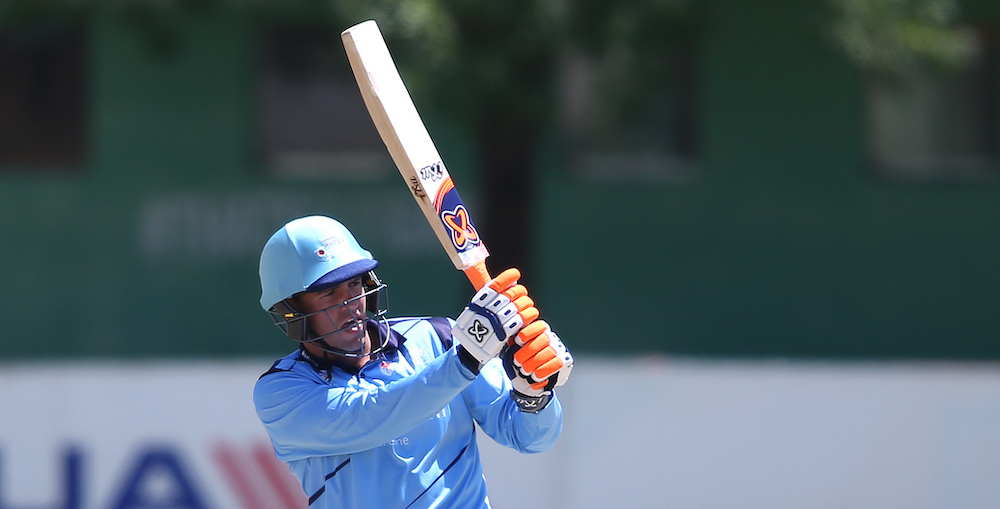
There’s always plenty of excitement over an emerging, young big-hitter. That excitement becomes palpable when he’s a man of all trades.
Enter Donovan Ferreira: a strong middle-order enforcer who can not only bowl off spin, but also keep wickets if necessary.
He’s been a staple feature in the short formats for the Titans, but more recently, he scored a rapid first-class ton against the Warriors. Much like Brevis, he brings plenty to the table, but he has slightly more multi-format experience under his belt.
The Rajasthan Royals signed him up for the IPL, and it’s rare to see an uncapped South African score a deal in the world’s most prominent T20 competition.
His exploits for the Joburg Super Kings have boosted his stocks, and he might have moved up a position in the pecking order for T20I selection.
Mihlali Mpongwana (Test)
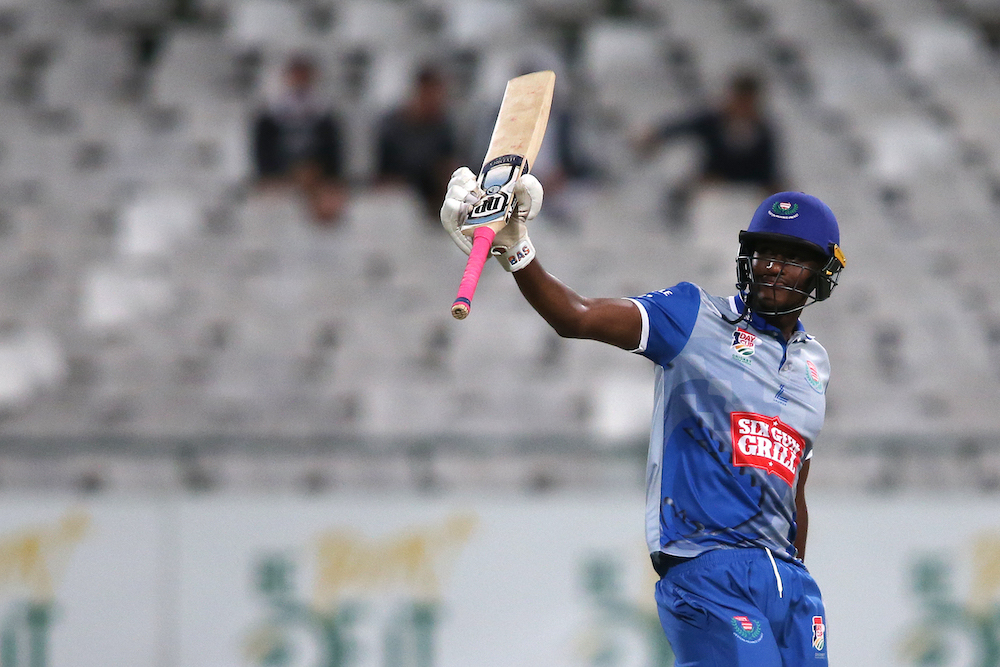
The search for a true allrounder has been going on for a few years, and the answer is yet to be found. The tall, fast-bowling two-in-one who plays for Western Province could be the answer.
The 22-year-old enjoyed a breakthrough season in both the 4-day and 50-over formats. Capable of batting anywhere in the lower-middle order, Mpongwana scored a brilliant 96 in the One-Day Cup against Boland, and it was an excellent rescue act in the context of the match.
His bowling may not have regularly been among the wickets, but a 62 at No 7 against a stacked Lions attack in the penultimate first-class game rounded off a profitable season for the youngster.
Mpongwana didn’t get a deal in the SA20, but that’s a blessing in disguise, since he’s made ample headway on the road to hopefully wearing the whites for the Proteas soon.
Jason Smith (Test)
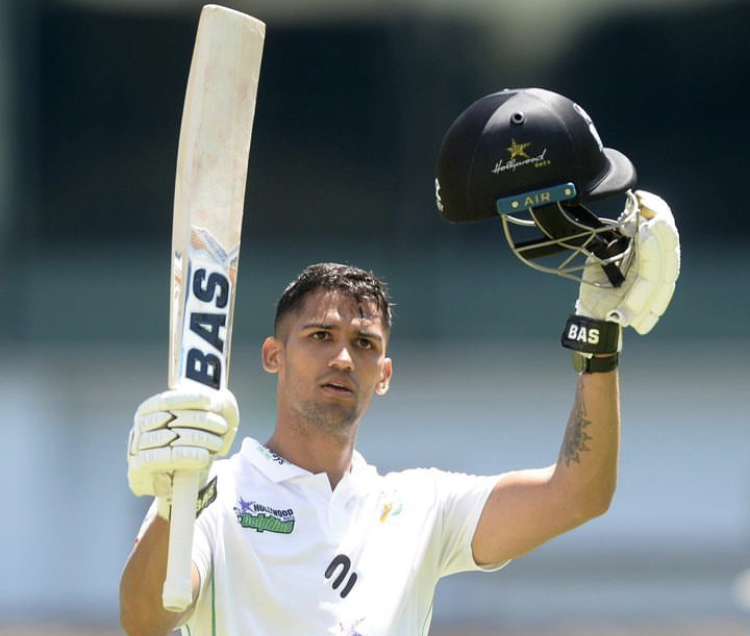
It’s always a luxury to have a top-6 batter who’s able to bowl. And if Jason Smith can keep up the good work from this season and extend it to the next, he may creep ahead in the queue.
It’s fair to say that 391 runs in 6 games with an average of nearly 56 has boosted his stocks, but at the sale time, he is facing stiff competition.
Smith used to play for the Cobras, but the move across the country has earned him more frequent game time.
His bowling has taken a bit of a back seat, but he can be very handy with the ball whenever the main seamers get rested before a new spell.
Nandre Burger (ODI / T20I)
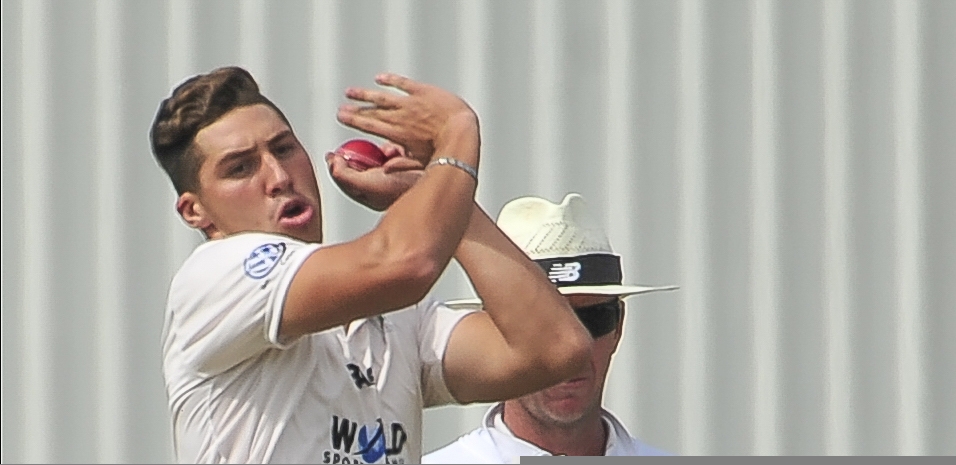
The 27-year-old Western Province left-arm seamer is yet another Proteas probable.
He did make the Proteas T20I squad during the Pakistan tour, but went gameless. But he offers variety and skill with his bowling, and stands a good chance of eventually breaking into the white-ball squads.
He has taken 9 wickets in 5 games during the recent 50-over tournament, and maintained a respectable economy just south of 5 runs an over.
His SA20 returns for the Joburg Super Kings may not have been as relatively convincing, but in any case, Burger is one to look out for.
Eathan Bosch (T20I)
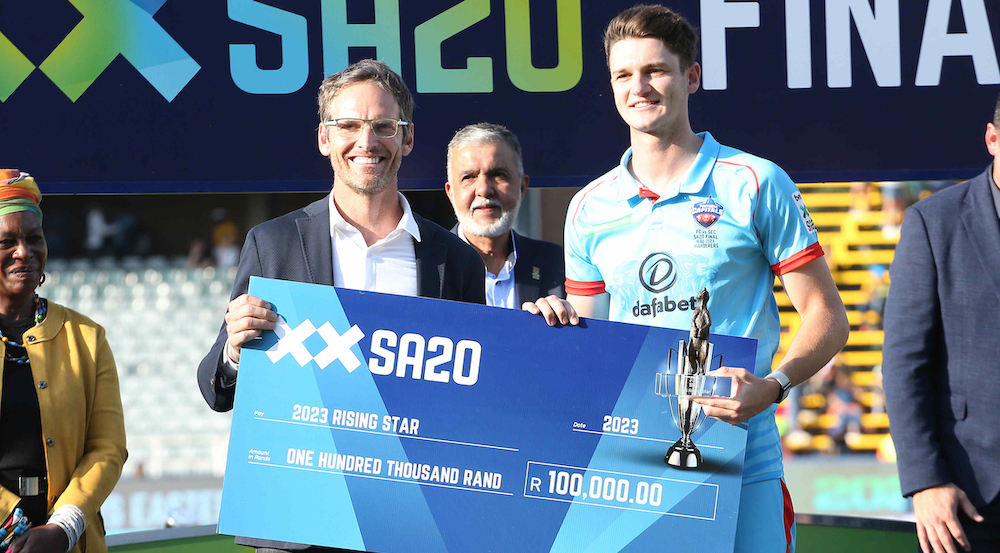
Pacy, robust, and fearless down the order, the 24-year-old Dolphins all-rounder has made confident strides across formats.
However, it was the SA20 that propped him up. Capable of economical, wicket-taking spells at any phase, Bosch offers the complete package.
There’s still an ongoing search for an allrounder that can offer the much-needed balance, and there’s a chance that he could be a potential solution.
Kyle Simmonds (Test)
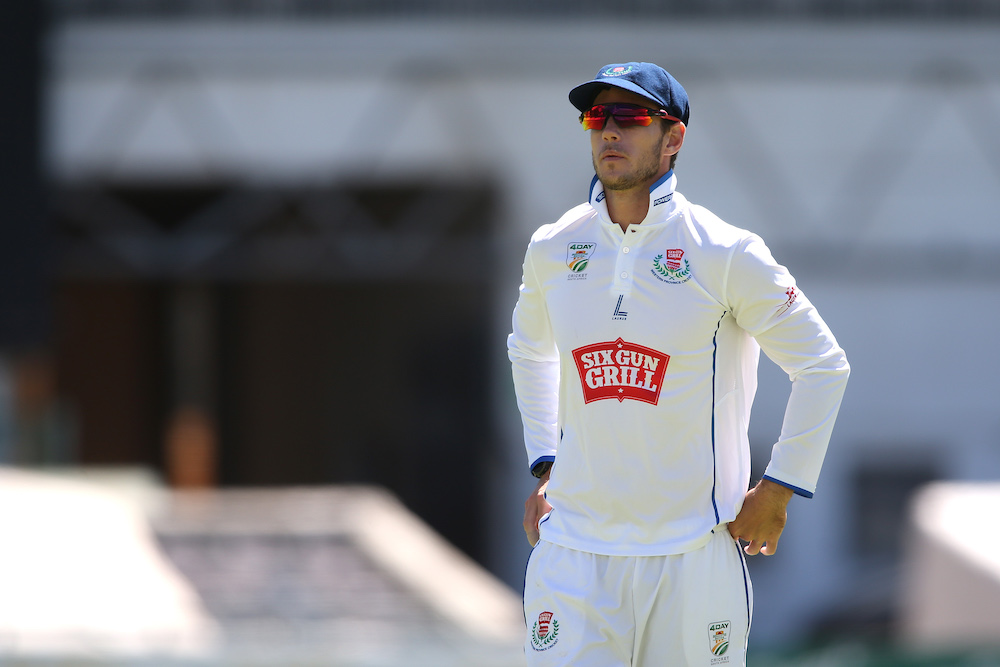
There’s a lot of buzz about finding a solid pace-bowling allrounder, but what about a left-arm spin-bowling allrounder who has had two very successful seasons for Western Province?
The numbers definitely back it up - an aggregate of 45 wickets and 407 runs across 11 first-class games. And let’s top that off with two match-winning spells in the SA20.
He may have only played three games for the Super Kings, but his 3-wicket haul against the Sunrisers included the wickets of dangerous hitters in Tristan Stubbs and Marco Jansen.
While most of his success has happened in the longer format, he’s able to contribute with either or both skills according to what the situation demands.
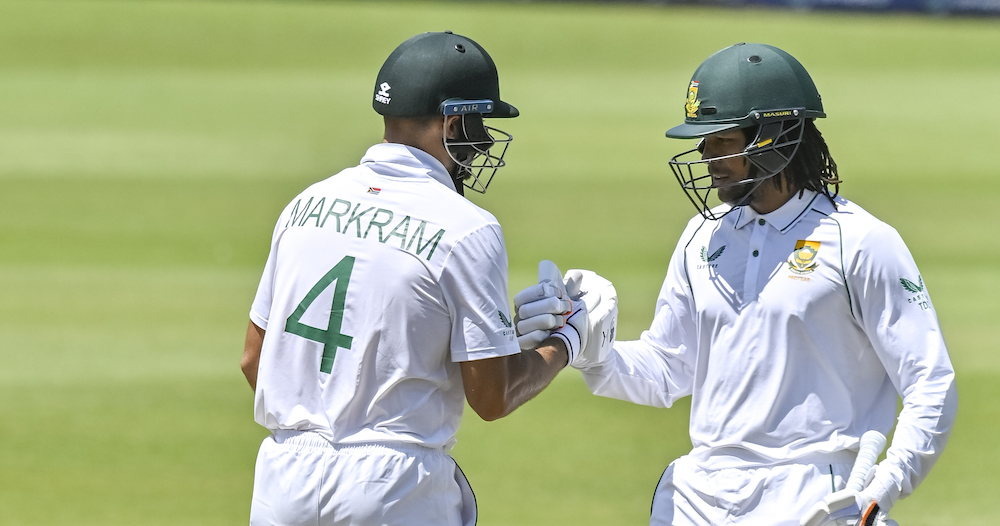
Back yourself and believe – Ashwell Prince
By Avuyile Sawula
Former Proteas batsman Ashwell Prince has urged young players coming into Test cricket to back themselves and believe in their capabilities at what he described as a “higher level” than domestic cricket.
Prince, who made his Test debut for South Africa in 2002 against Australia and went on to score over 18, 000 first-class runs in his career, also added that players needed to “seek out” opportunities to get noticed by provincial teams.
“I think the main thing is to believe in yourself when you go from a domestic level to a higher level,” said Prince, speaking exclusively to Cricket Fanatics Magazine on Day 3 of the first Test between South Africa and the West Indies.
“Stepping up to a higher level, which is test cricket, you can often doubt yourself and ask questions about whether things that you do at a lower level will withstand or be good enough to be successful at test level.”
“It’s about believing in your ability and what you’ve got in terms of your technique, your character, and your make-up—if it’s good enough to be successful at the domestic level and your efforts have been recognized there, and therefore you’ve been selected to a higher level, then trust those characteristics and skills and believe in yourself.”
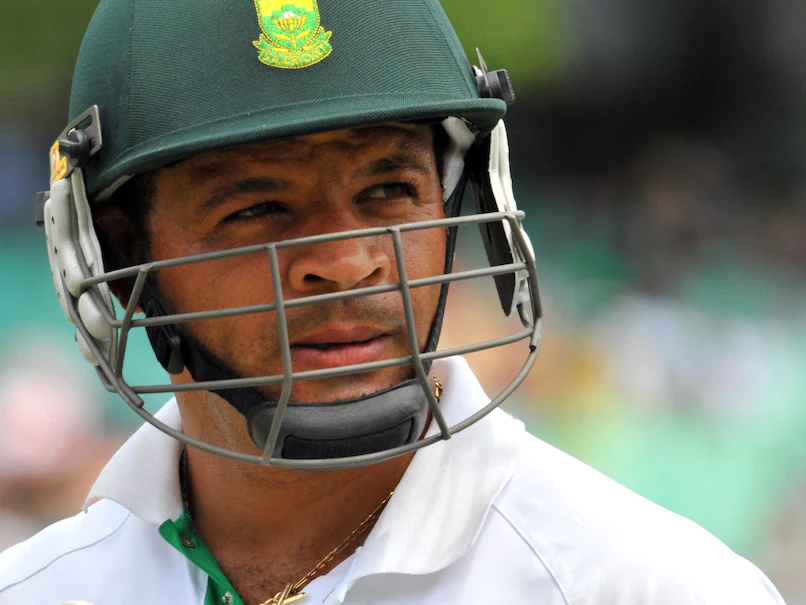
Creator: ALEXANDER JOE | Credit: AFP
The 45-year-old, who also captained South Africa at one stage in his career, encouraged players to not overthink situations and understand that as they grow up, so does the level of the game.
“Sometimes you just tend to think that it’s going to be hard and maybe you have to change this and that because you’re moving up a level, but every time you move up, the level does move up a little.
“It’s the small things that change really. As a batter, for instance, the only thing that changes is that you get a lower percentage of bad balls, and that’s the basis of where you begin in test cricket.”
The Proteas are currently playing a two-match Test series against the Windies, with the 4-Day series happening on the side. Despite all of that, many young players, predominantly coming from high schools or provinces starved of cricket, struggle to fight their way into provincial teams.
Prince also had a few words of encouragement for them:
“Seek it out,” he said.
“Every talented youngster is blessed with a lot more attacking abilities than others, solid techniques, and long periods of concentration.
“If you’re that guy, you’ve got to seek out those opportunities. Where are they in terms of coming from a province that’s loaded with top batsmen? You’re not going to get in immediately, but be prepared to move somewhere.
“Even if it means moving to a second-division team and scoring runs there, the best thing you can do is have two or three first-division provinces get into a bidding war to try and get your services, and as a young star, you wanna go where you can get the most game time,” he concluded.
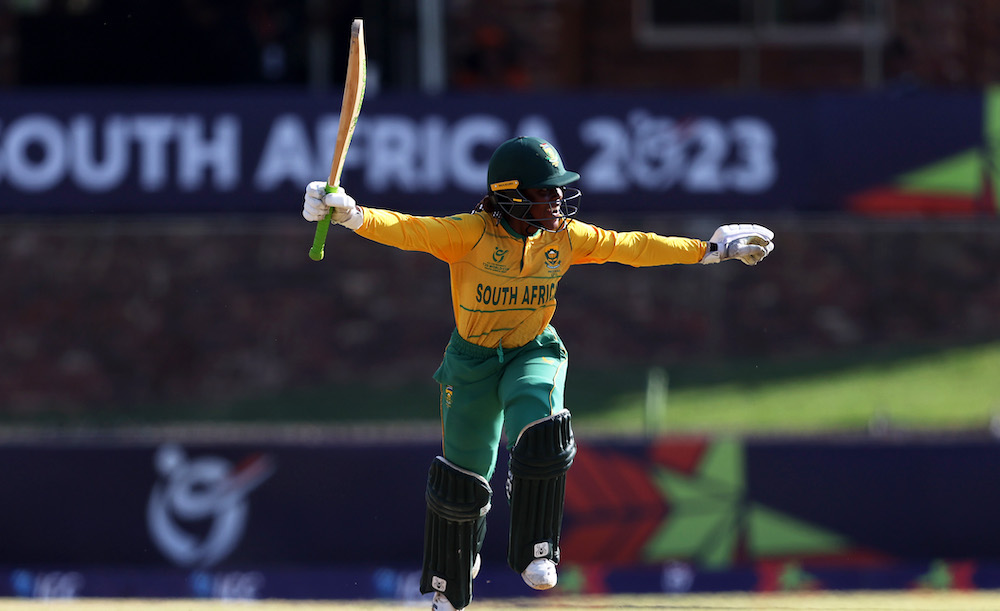
Karabo Meso Determined to be the Best in the World
By Emily Norris
Karabo Meso, at just 15 years of age, played for the Proteas Women U19 team in the inaugural 2023 ICC U19 Women's T20 World Cup held in Potchefstroom and Benoni, South Africa, earlier this year.
Meso ended with the most dismissals in the tournament – 8 (3 catches and 5 stumpings) in 5 matches and scored 80 runs in 5 innings. Meso also made the Team of the Tournament as a wicketkeeper.
To play for your country at any level at the tender age of 15 is something that many young players dream of.
However, cricket wasn’t always something that was on her radar. Growing up, Meso much preferred athletics over cricket, but her mother suggested that she try it, and that’s how she started playing.
Her sister, Lehlohonolo Sardick, who plays for the Gauteng Lions’ senior women’s team, was fully supportive of this suggestion.
Meso started playing KFC mini cricket at 8 years old, after going to the Wanderers for the first time to watch the Proteas men play. She fell in love with the game, and this is what motivated her to want to become a professional cricketer.
Like many young players starting out in the game, she wanted to be a fast bowler, but her coach at the time, Tholang Hlalele, had other ideas. He took her to the nets one day, gave her the gloves, and that’s how she started keeping.
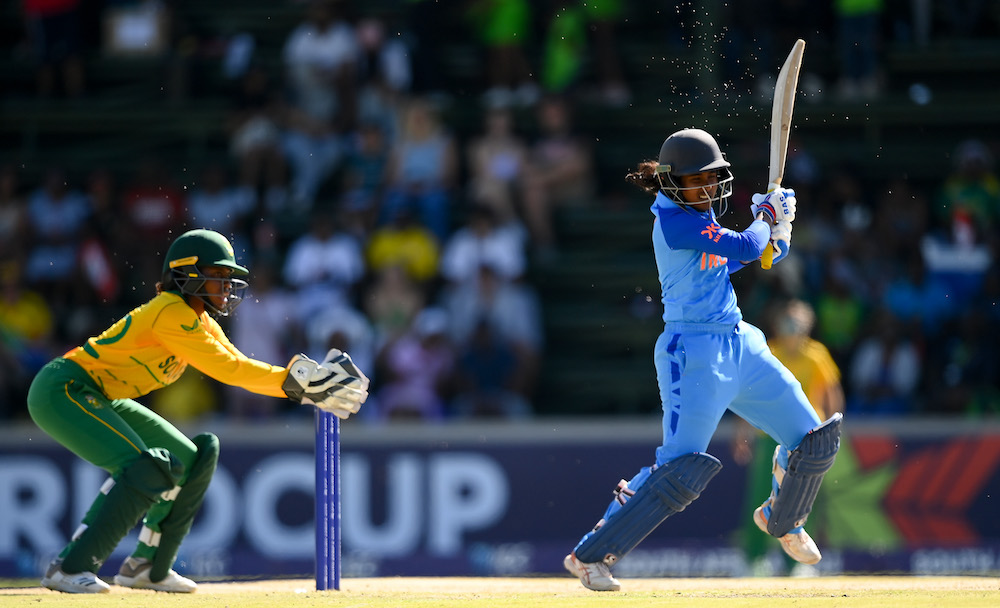
“Wicketkeeping wasn’t my thing. I wasn’t interested obviously, as most cricketers [aren’t] when they start [playing]. They want to become bowlers, so I also wanted to be a fast bowler. But my coach was the one who suggested [that I become] a wicketkeeper.”
After playing cricket for 7 years, Meso started playing for her country at a junior level.
She reflected on her U19 World Cup experience, and what it was like to play for the Proteas.
“The U19 World Cup was a great experience even though there was a lot of pressure, but it was [good to play] against all those nations and see the level of women’s cricket being played around the world.
"The best thing was playing for my country. It felt good, and we have the best support team and management.”
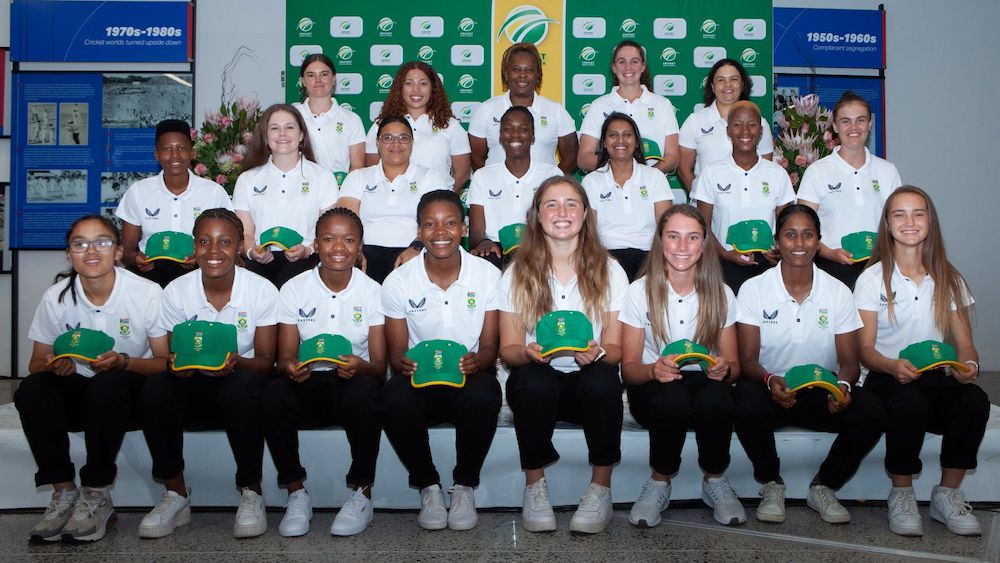
Meso’s goal as a cricketer is to become one of the most dominating wicketkeeper batters around, and also to inspire the next generation that comes after her.
She credits coach Tholang Hlalele for where she is now and for how far she’s already come.
“He is the one who has made me [into the player that] I am today; he has backed me from a young age. He is still working with me today to [help me] become one of the best.
“My biggest inspiration when I was growing up was AB de Villiers. He made me want to become the greatest batter. When he played, I used to copy how he played, and I always talked about how good he was.”
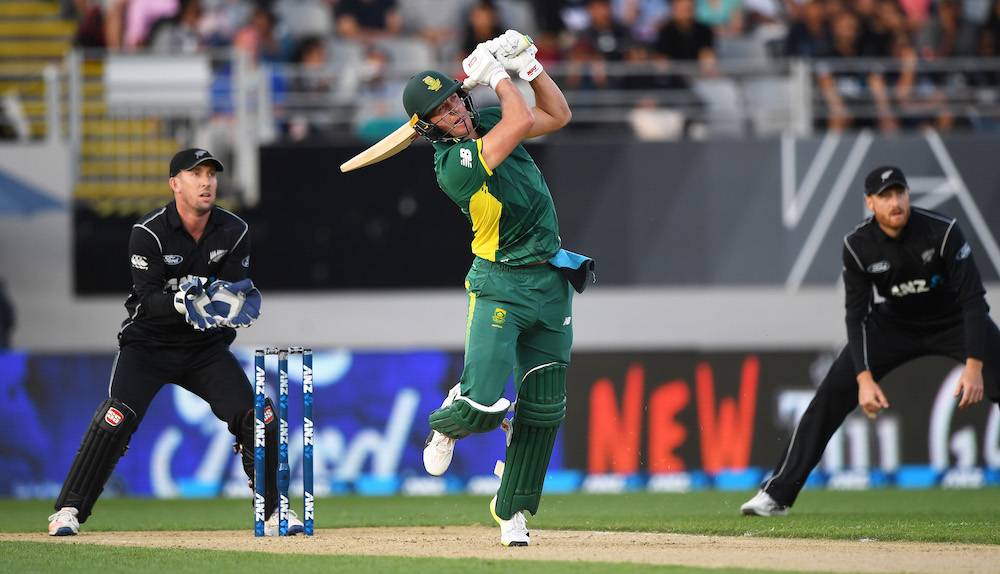
Naturally, players are going to go through ups and downs as a cricketer, and I asked Meso how she handles this.
“Mental strength is very important in cricket, but every cricketer handles it differently. For me, I use a journal to write down how I feel before I start playing cricket every day, or I talk to my coach.
"He always reminds me to stay focused and positive as a cricketer. When I am in a dip of form, what motivates me is to watch one of my best matches that I’ve had, over and over; or to remember what I am capable of doing when stepping onto the field.”
As well as backing herself, Meso’s family, coaches and teammates back her too, and I do not doubt that we will see her make her debut for the senior women’s Proteas side in the not-too-distant future.
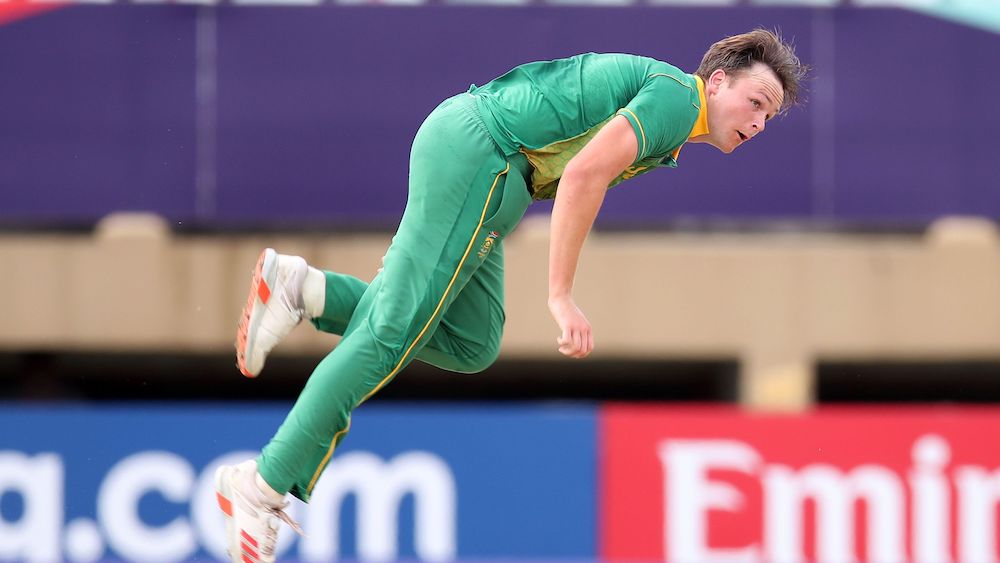
Q&A: Matthew Boast
By Jessica & Janine October
How and where did your cricketing journey begin?
My cricket career began at the age of 7. I’d say a bit earlier than that, on the lawn of my grandparents’ house. My grandfather used to throw a couple balls to me and I’d stand in front of a tree and mess around like that but I probably go into it at the age of 7 playing red ball hard ball cricket. It just took off from there.
You were selected to compete at the CSA Senior provincial competition in Bloemfontein in 2021, what were your thoughts going into the tournament?
In 2021 just before Bloem I was really really excited. It was going to be an awesome opportunity and unfortunately I got injured just before but it would’ve been awesome just to be a part of it and I was super privileged and it felt like such an honour to represent my country for the first time it would’ve been awesome but unfortunately I picked up an injury which just pushed me a bit more to continue to try and be in the set up.
You bowled 3/26 at the U19 Cricket World Cup in the West Indies against Ireland in 2022, describe how you felt.
That spell against Ireland at the world cup was something I’ll remember for the rest pf my life. I just felt like everything was going exactly the way I wanted it to go, and it just felt surreal to be in that environment, especially having my family there watching all the way in the West Indies it was a really special day for me. I couldn’t believe it at the time, but it was really special to be out there.
What have you learned from the U19 WC tournament, what have you taken with you into your cricket career? (positives/negatives).
The U19 world cup taught me quite a lot. Being there around those players in that environment it showed me what’s needed to play at the best level or one of the best levels.
If I wanted to make in professional cricket what was needed to be done, just the intensity I thought was something new to me and it helped me perform under pressure. I feel like now under pressure situations I know what to do, go back to basics. It was a really awesome experience.
You made your debut for the SA U19 squad vs Easterns in 2022 for the CSA Provincial T20 Cup in Pietermaritzburg, winning by 5 wickets. How did you feel?
Yes the debut for the U19 side that was a really cool day I remember batting with Brevi [Brevis] for a bit and bowling into that wind against the men’s side it was a new experience for me and being able to be out there representing your country it was something that I will never forget.
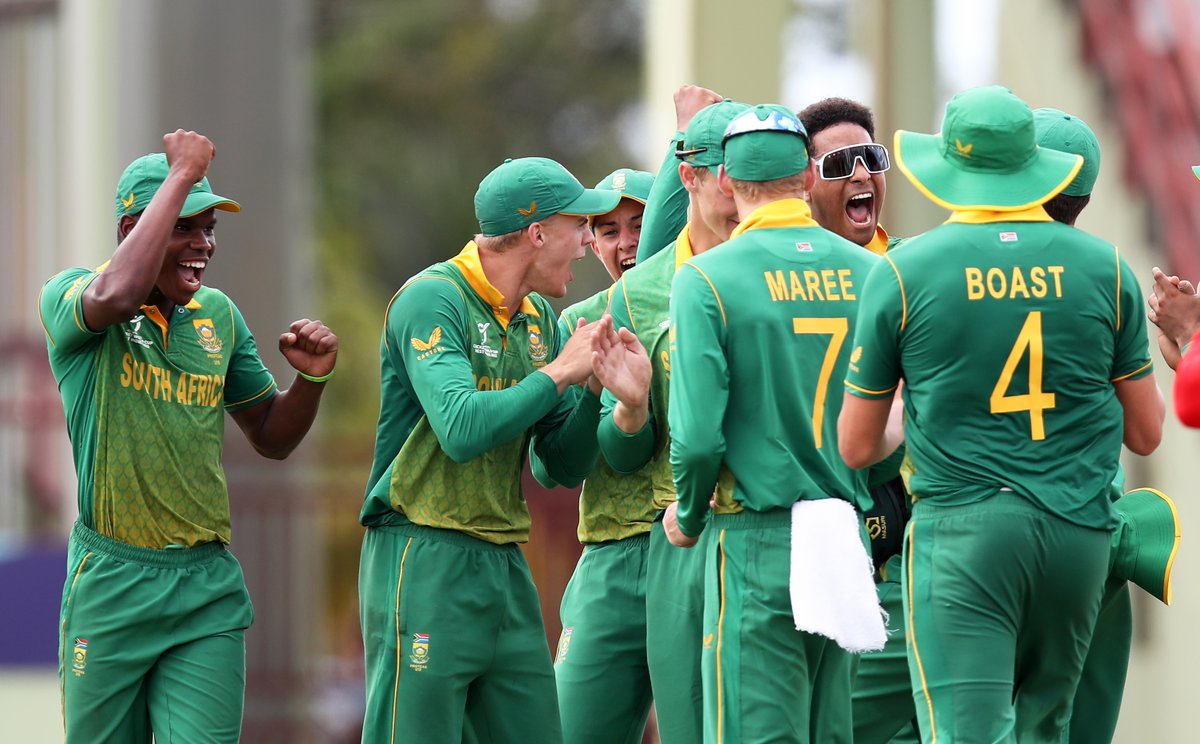
As an allrounder, how do you manage to balance both batting and bowling?
As an allrounder, the one thing that I do is make sure that I focus on both aspects with the same amount of time and effort. So, say if I bowl 6 overs in the nets at full pace and really giving it my all I make sure I try to do a batting session after that and then maybe the next time bat first and then bowl after that, and just make sure you distribute your time equally across both aspects.
You also had the opportunity to be a net bowler at the SA20 for the Paarl Royals. How would you describe the experience being around players such as Jos Butler, Jason Roy, David Miller? What have you learned?
Yes being a part of that Paarl Royals set up and being a net bowler there yoh was something special being able to rub shoulders with Jos Butler, Jason Roy and David Miller was really really a big experience for me.
I learned quite a lot about my game there, you’ve got to concentrate on every single ball. I spoke to Miller about my plans after bowling to him and just getting that experience to bowling against guys at the top level in your game. It really teaches you a lot about what needs to be done and what needs to happen in order to get to that standard of playing.
You debuted for the Titans at the CSA 4-Day Series in 2023, what was your experience during that tournament?
My debut for the Titans was something I’ve been dreaming for a long time. For me it’s a really special place and being able to put on that cap and put on that baggy blue was yoh it was a really really cool moment.
My dad actually surprised me, he wasn’t going to be able to make it and I was at 3rd man and I turned around and he was there which made it even more special, for him to be there on my debut game and for us to end up with the win was also really cool to be a part of that, and to get the ball rolling on a good note.
Who is your biggest inspiration as a cricketer?
My biggest inspiration has got to be Vince van der Bijl. He’s my Great-uncle, my moms uncle and he’s been there for me and given me so much advice over the years and just knowing what he’s done in the cricketing space, him being a part of my family.
So having him there giving me advice has been really cool. The odd phone call really helps when you’re not feeling too good and he gives that advice on what to do, it’s really nice to have someone like that to look up to especially in your family.

Do you support a football (soccer) team? If so, which team?
I do support football, I’m quite into it actually I support Liverpool. Unfortunately, we’re not doing too well at the moment but yes through thick and thin. Ja you’ll never walk alone.
Are you following any TV series?
I was actually following a TV series, but I’ve just recently stopped because of studying and test week coming up but, I was watching The Office and yoh, I’ve been loving it so much.
Top 3 songs on your playlist at the moment?
My top three songs at the moment have got to be:
Breakfast in Soweto – Prince Kaybee
Hall of Fame - The Script
Iris – Goo Goo Dolls
Daily Show | Let's talk about it
Video Playlist
The Podcast Live Show:
Exclusive Interviews
Crossword Puzzle
Proteas vs West Indies
ISSUE 30: Crossword Answers
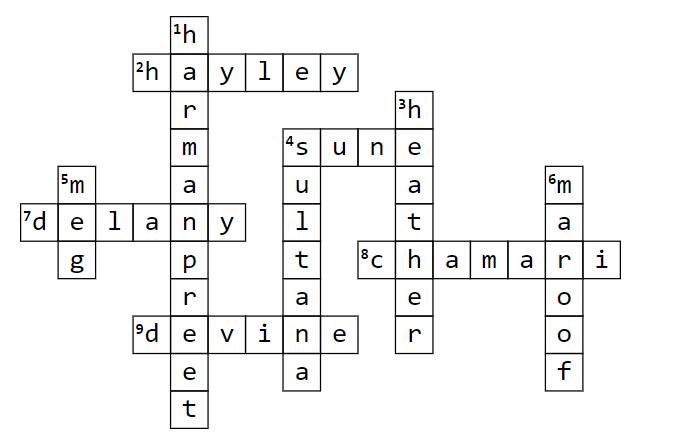

Magazine info
Editorial Director
Khalid Mohidin
IT and Technical Director
Faizel Mohidin
Contributors
Abhai Sawkar
Avuyile Sawula
C. S Chiwanza
Emily Norris
Jessica October
Janine October
Khalid Mohidin
Lubabalo Skhosana
Werner Erasmus
Graphics
Khalid Mohidin (Cover and Graphics)
Stubbs Cover Image (BackpagePix)
Images
BackpagePix
Cricket South Africa (Cover Photo Temba Bavuma)
SportzPics
Supplied
Twitter
Facebook
Video Binge List:
On Lockdown Series
The Podcast Show
Legends with Ravi
Daily Show